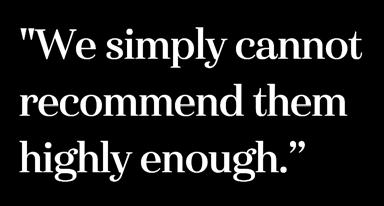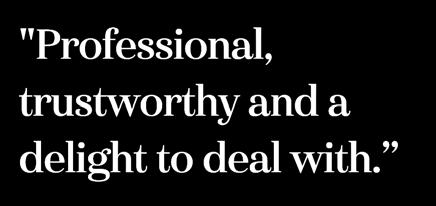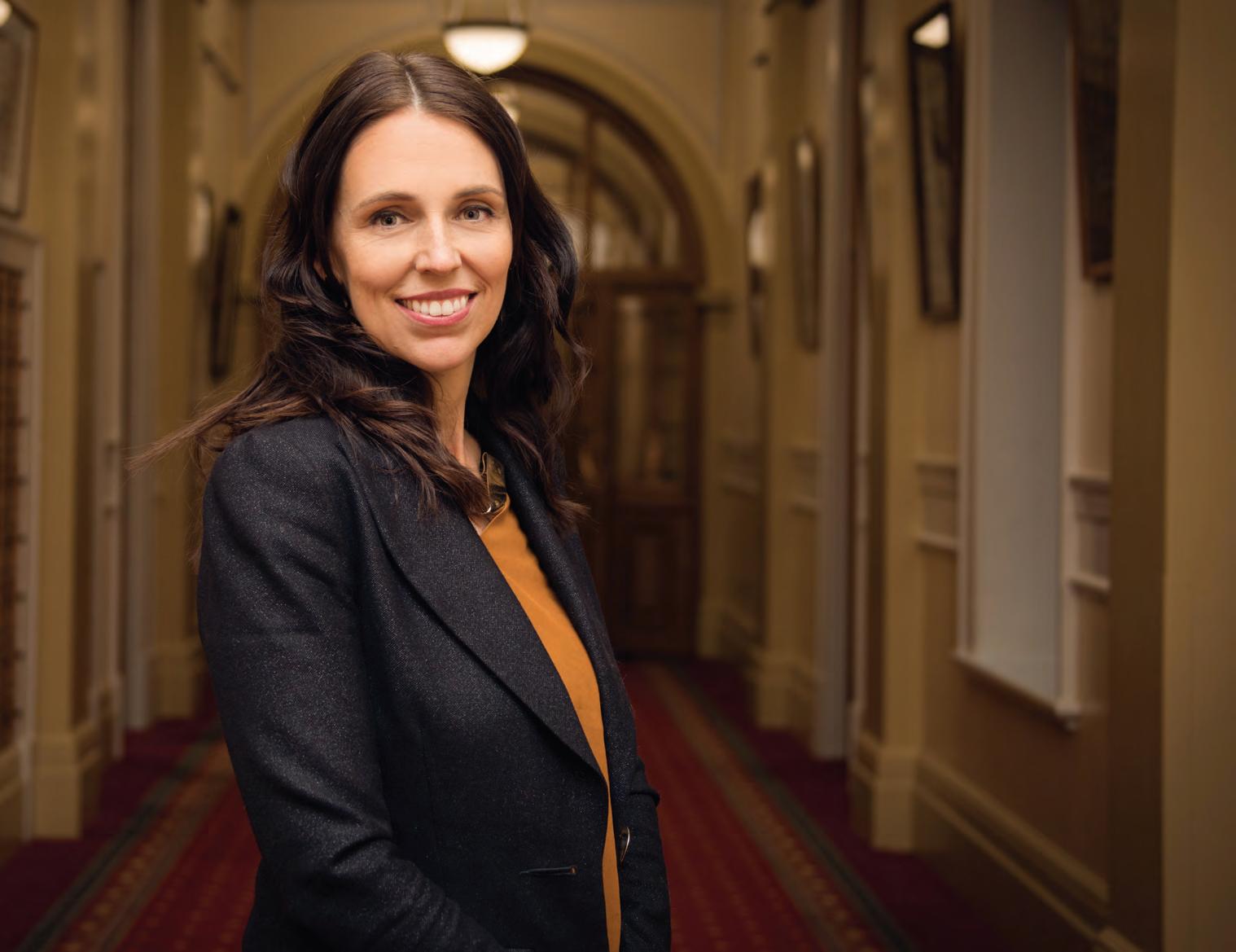

massive mandate for labour
NOW BAY BUSINESS NEEDS EFFECTIVE ACTION
Prime Minister Jacinda Ardern’s Labour Party has achieved an unprecedented result under MMP. Now, with a majority that will allow Labour to govern virtually unchallenged, the big question remains – can the new government deliver? See pages 3-7.



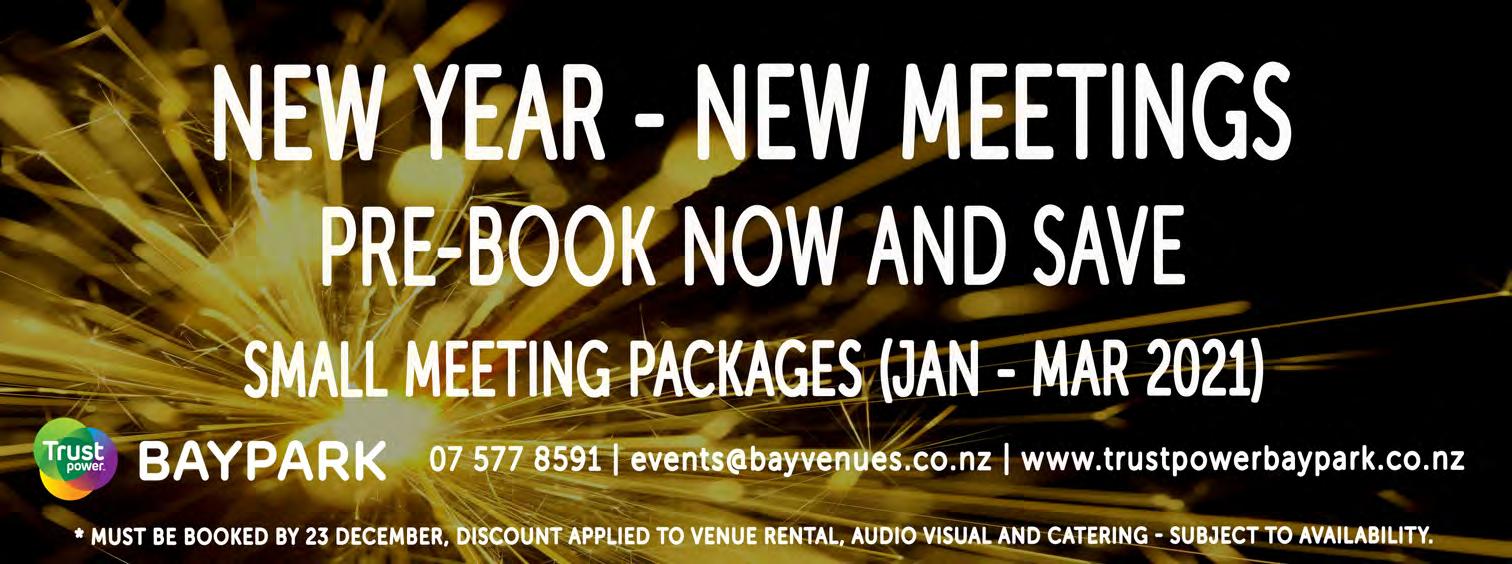





























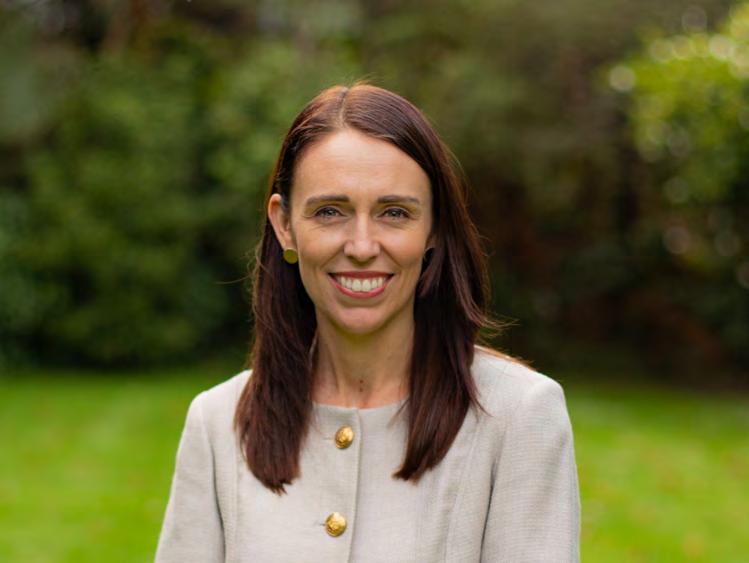

Massive mandAte for labour
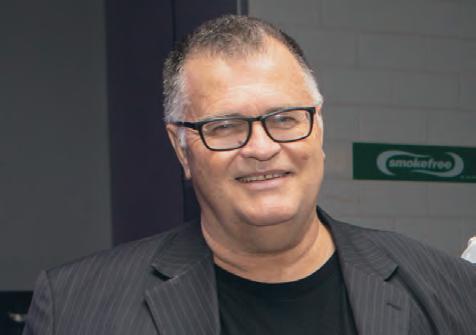
Jacinda Ardern was expected to win the latest election. But the comprehensive scale of the Labour Party leader’s defeat of National caught most observers by surprise.
By DAVID PORTER
ew Zealand’s political landscape has been upended. Labour has an overwhelming majority, and can now govern alone for the next three years. Given Labour has not been noted for its assertive or effective implementation of policy for most


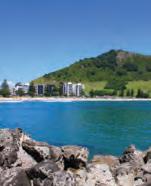





of its coalition government’s term, it will be interesting to see what happens next.
What the Bay needs, say business leaders, is prompt action to remedy the problems of the RMA that slow down development, to get affordable housing built, and quickly get major infrastructure and roading projects under way. There
will be no tolerance from the electorate next time around for non-performance if Labour fails to deliver, given the powerful position it now holds.
Humbling result for National
The National Party has been, in the words of Western Bay MP Todd Muller, “humbled” by its defeat. “It was a pretty sobering night,” he said. As for his own role in that defeat, Muller has acknowledged that his own rolling of fellow Bay MP Simon Bridges played a part in the party’s failure at the polls.




Opposition leader Judith Collins
PM Jacinda Ardern
David Porter is editor of Bay of Plenty Business News
www.bopbusinessnews.co.nz
CONTACT INFORMATION
PUBLISHER
Alan Neben
Ph: (07) 838 1333 Mob: 021 733 536
Email: alan@bopbusinessnews.co.nz
EDITOR
David Porter
Mob: 021 884 858
Email: david@bopbusinessnews.co.nz
PRODUCTION
Copy/Proofs/Graphic Design
Times Media – Clare McGillivray
Ph: (09) 271 8067
Email: clare@times.co.nz
ADVERTISING INQUIRIES
BUSINESS DIRECTOR
Pete Wales
Mob: 022 495 9248
Email: pete@bopbusinessnews.co.nz
ELECTRONIC FORWARDING
EDITORIAL:
News releases/Photos/Letters: david@bopbusinessnews.co.nz
GENERAL INQUIRIES: info@bopbusinessnews.co.nz
Bay of Plenty Business News has a circulation of 8000, distributed throughout Bay of Plenty between Waihi and Opotiki including Rotorua and Taupo, and to a subscription base. www.bopbusinessnews.co.nz
Bay of Plenty Business Publications 210/424 Maunganui Road, Mount Maunganui, 3116
Bay of Plenty Business Publications specialises in business publishing, advertising, design and print media services.
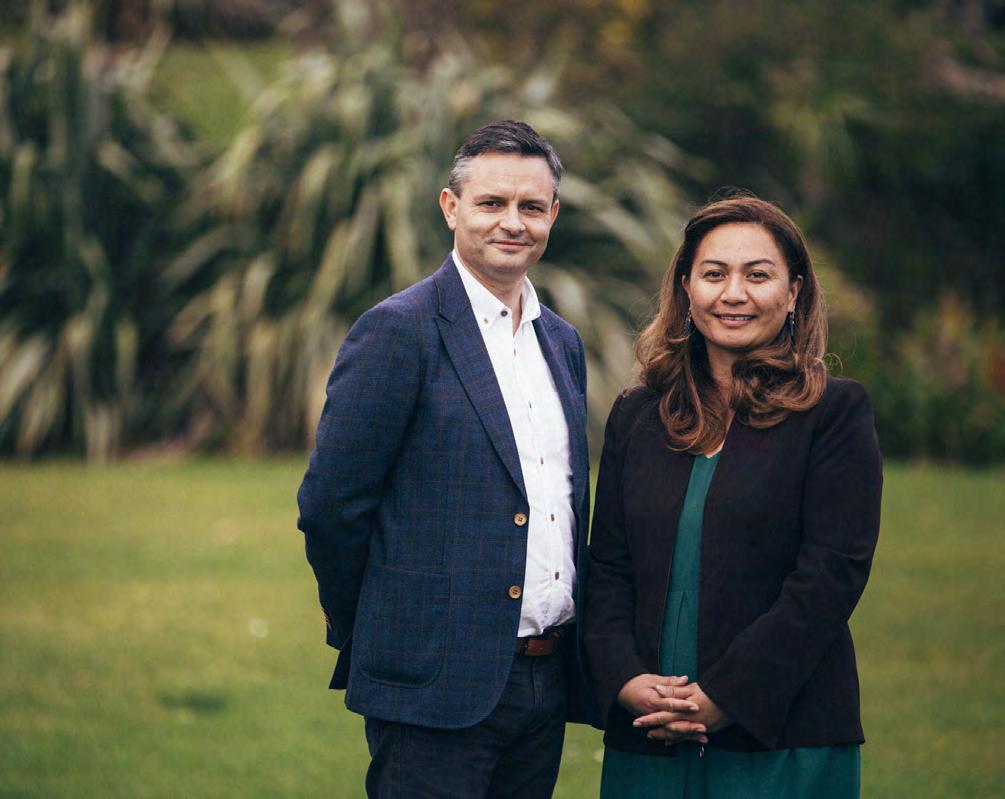
Massive mandAte for labour
But of course, neither Muller nor eventual election leader Judith Collins would have been able to take their turns as leader had National been in better shape.
The party is now preoccupied in intensely reading their own and the electorate’s entrails for clues on how they can win back power.
ACT leader David Seymour was clearly one of the election’s winners, bringing in a healthy 10 MPs to join him in what had been a solitary role in parliament.
Unlikely as it may sound, unless National gets itself together, ACT may continue to erode its support partner’s centre right/free enterprise slice of the New Zealand electorate.
It can be argued that Seymour made a more compelling series of arguments for the centre-right position during the election campaign than National.
There is a strong view that a number of National supporters held their nose, voted for their
National MP, and gave their party vote to Labour simply to keep the Green Party from having leverage.
Anecdotally, I can vouch for several examples of this
Greens – not that they disagree with their environmental positions, but because of their economic positions, such as the wealth tax.
What the Bay needs… is prompt action to remedy the problems of the RMA that slow down development, to get affordable housing built, and quickly get major infrastructure and roading projects under way. There will be no tolerance from the electorate next time around for non-performance if Labour fails to deliver, given the powerful position it now holds.” – David Porter
strategy. As one business leader remarked, all of business would have been much keener to have a solely Labour government than one with the
“Stability is a big thing for business,” he said.
As this was written, there were still ongoing negotiations between the government and the Greens, but whether
they finish up inside or outside cabinet, the reality is that their ability to influence policy is diminished despite their healthy share of the vote.
While it would be nice for Green Party co-pleaders to get their feet under the cabinet table or near it, they would seem to run as much risk of alienating some of their core supporters by doing so, rather than by standing alone on the cross benches, albeit in support.
Overcoming first-term failures
The basic issue that the Labour Government now confronts may be in meeting an excess of expectations.
A self-described “pragmatic idealist” Ardern largely failed to control the forces within her coalition in the previous term.
Campaign promises were not met, the capital gains tax was quietly buried, the 100,000 new houses were not
Green Party co-leaders James Shaw and Marama Davidson
Massive mandAte for labour
built, child poverty was not improved. This could partly be blamed on warring coalition partners.
Despite New Zealand’s relative success in dealing with Covid-19, it is fair to say that we have been lucky in being isolated and blessed with a relatively clear set of communications from the government – as well as a generally well-behaved and mostly sparsely distributed population.
That said, the lockdowns have been riddled with inconsistencies and the tracking and border controls have exposed some serious flaws that still need improvement.
NZ First gloried in its role as the “handbrake” of common sense in the outgoing coalition.
Those days are gone. It has always been the Winston Peters’ party and now it seems unlikely in the extreme that either the party or its leader will be back to fight another day, despite his many fans and undeniable shrewdness.
Even Shane Jones’ last-minute doling out of Provincial Growth Fund election baubles in the frantic run-up to the election wasn’t enough to get the party over the electoral threshold.
So there will be no handbrake to blame for any missteps in the current term of the new government.
Nobody can take away from Ardern the fact that she is perceived by most as a highly empathic politician and is an excellent communicator. Those qualities have shone through during our recent disasters.
It certainly helped Labour’s election prospects that Ardern was able to run a virtually free daily election broadcast throughout Covid-19’s onset and its various lockdowns.
But she undoubtedly has a likeable quality the electorate responded to – and without that any politician is doomed.
The problem facing National, is replacing Collins. She inherited a poor hand prior to the elections, but it seems unlikely that she will survive as opposition leader.
Fixing the RMA and housing
Priority One chief executive Nigel Tutt says one of the biggest issues the new government needs to deal with is fixing housing, via the Resource Management Act (RMA).
Tauranga had New Zealand’s highest rising population growth in the June quarter this year, but the lack of developable industrial land, and rising house prices are constraining growth. Development risks need to be reduced, he said.
“There are more people moving here,” he said.
“Working from home and more flexible working arrangements helped. I think we’ll see business continue to want to
Covid-9 infected world.
Infrastructure development was key, particularly in infrastructure with roading as a key component. The government needed a good regional plan to make sure that happens.
“They have that now and partnered really with the region in the last year or so, so that will help immeasurably, particularly for local business in terms of improving productivity.”
New Zealand and the Bay in particular, had been lucky so far that Covid-19 hadn’t had more of an effect on the economy.
“We’ve been lucky our trading partners have been relatively unaffected,” he said.
“It’s now about how we grow well from here.”
Those are the businesses that can employ a number of the Kiwis that Labour wants to be employed,” he said.
“The government should work with business on a plan to develop that and not make it so cost prohibitive they are then looking for alternatives to employing local staff.” – Matt Cowley
move here on the strength of the port and the fact that the Bay is a growing region.”
Priority One was getting a lot of enquiries both domestically and from overseas, he said.
“I don’t think that’s going to ease off at all. But we want growth at the right speed. And if we can’t get hold of talent or the economy can’t cope with the rising cost of living, then businesses are going to be placed in a very difficult position,” he said.
“That’s what [the government] needs to deliver on in the next three years.”
The other main issue, of course, said Tutt, will be for the government to ensure that it invests wisely for economic stimulus and gains, in a
Getting Kiwis into jobs
Matt Cowley, chief executive of the Tauranga Chamber of Commerce, told Bay of Plenty Business News that the number one issue of the election –other than managing Covid-19 – was the economic recovery and getting Kiwis into jobs.
“Labour being Labour, they have a number of employment relations initiatives to run through,” he said.
“That was their election campaign [platform], they’ve got no one else they really need to negotiate with, so they’ve got the numbers and they’ll be able to deliver it.”
Cowley said business’ goal was that government work with the industry and employer organisations to roll out those

changes in a pragmatic fashion, he said.
“There are greater costs going to be put on to business to employ staff and I’m sure a number of business will accept that,” he said.
“But to help achieve the broader goal of keeping Kiwis employed, a great way would be to reinstate that 90-day trial across all business so that peo-
ple can have an opportunity to prove themselves,” he said.
Before they commit to taking on the costs of full employment they need to be a bit more risk- averse until they’re sure that is a good business decision, said Cowley.
The most vulnerable business on the back of Covid-19 have been sectors such as hospitality, tourism and the con-
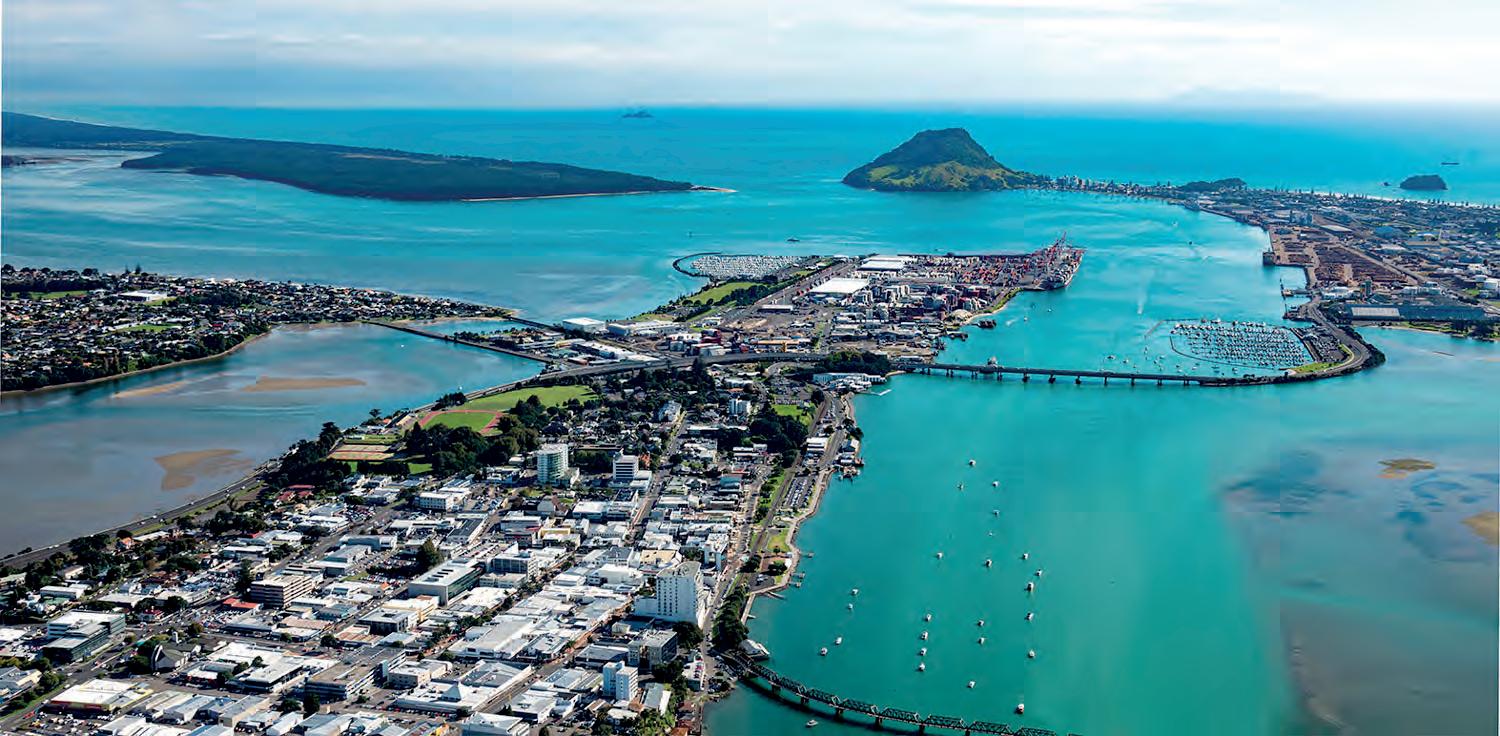
struction sector, with generally low skilled labour.
“Those are the businesses that can employ a number of the Kiwis that Labour wants to be employed,” he said.
“The government should work with business on a plan to develop that and not make it so cost prohibitive they are
Continued on page 6

NZ First’s Winston Peters

Specialists in Commercial, Industrial, Office and Residential Building Washing
Grime Off Now can offer you a tailored programme for the maintainence and presentation of your building to ensure your business is presented in the best possible way.
We can provide you with a customised programme, our services include:
Building Washing (Commercial/ Industrial/Office/Residential)
Roof Washing
Gutter Cleaning
Window Washing
Moss, Mould, Lichen, Grime, Oil and Stain removal
Bug and Pest Control management programmes
Fogging – Sanitizing
Hot water washes – Car parks, Pavements and Driveways
High Level – Atrium Dusting
Call us today for a quote
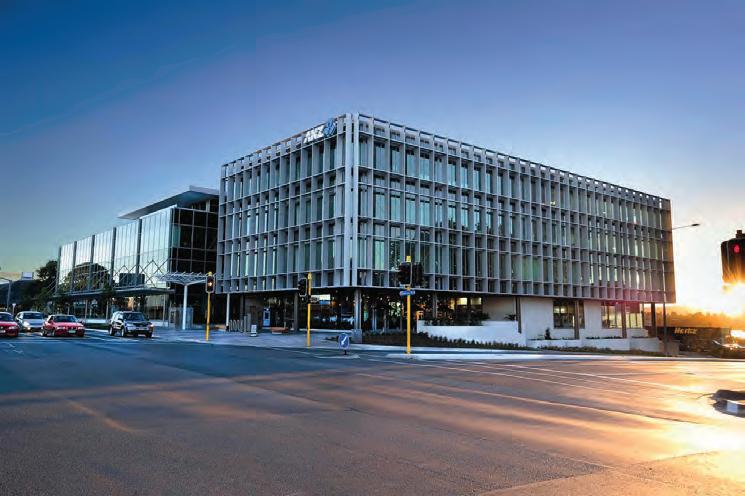
Massive mandAte for labour
Continued from page 5
then looking for alternatives to employing local staff –whether it’s outsourcing to other countries or whatever way.”
Problems of moving on and off benefits
As noted in our story on the kiwifruit employment sector, replacing the seasonal workers that are no longer allowed to enter the country, is causing major problems for the sector. (See page 9). The problem is that offering someone who may have taken some weeks of bureaucractic wrangling to get onto a benefit, a relatively short term, physically demanding job at a low hourly rate in a location away from home, is
unlikely to be very attractive. Especially if they then have to go through the same bureaucratic hurdles to get back onto their benefit again.
Priority One’s Nigel Tutt suggested the government
needed to find a more pragmatic approach to solve that problem, whether it was some kind of way that allowed beneficiaries to easily move from benefit to taking the seasonal option.
“We want growth at the right speed. And if we can’t get hold of talent or the economy can’t cope with the rising cost of living, then businesses are going to be placed in a very difficult position. That’s what [the government] needs to deliver on in the next three years.” – Nigel Tutt
Continued on page 7
ACT’s David Seymour

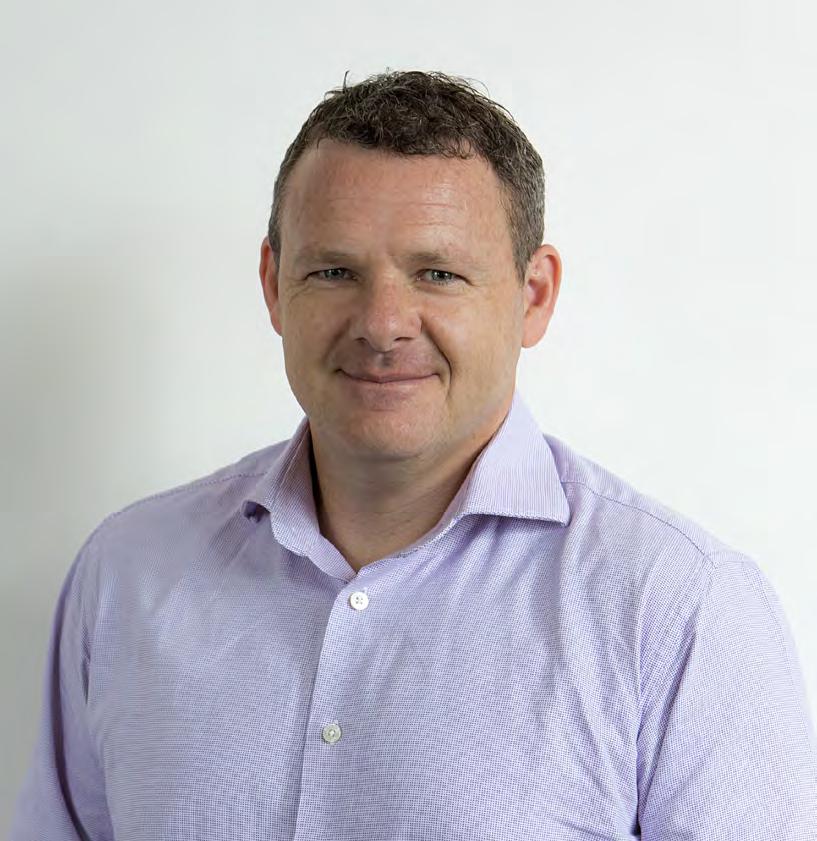
Massive mandAte for labour
Continued from page 6
“The reality is that [horticultural work]is going to be quite a constrained workforce,” he said.
“Ultimately if we are constrained for workers, businesses will need to throw everything at automating as well and it won’t be a one-year fix.”
Todd Muller, whose family and business background is in horticulture and the dairy industry, said that from his personal perspective Labour did not really understand the reality of building a business.
“There are the compliance and regulatory impost, how challenging it is to get and keep good people, the price of labour,” he said.
“I generally think they don’t get what people have had to put at risk – their own house
in some cases – to get up and going.”
Respecting the wishes of the people
Bryce Heard, the chief executive of the Rotorua Chamber of Commerce, said the election outcome reflected the wishes of the people.
“We are lucky to live in a country where we get a chance
to have a say on who runs the country, every three years,” he said.
“We are living in very unusual times and people are feeling insecure and looking for stability and confidence.
“The Labour Government must be congratulated and it has been handed a strong mandate to deliver its policies without the impediment of any governing partners, so
Working from home and more flexible working arrangements helped. I think we’ll see business continue to want to move here on the strength of the port and the fact that the Bay is a growing region.” – Nigel Tutt
that helps with stability and confidence.”
Heard said that what local business would like to see is a clear strategy to place scarce taxpayers’ money into areas where economic growth and provision of long-term infrastructure are delivered.
Of course some palliative care will be necessary as well, but it is not the long-term solution and needs to be more tightly directed, he said, adding that well-directed investment into infrastructure was always a good use of taxpayers’ money.
“We must bear in mind that the money is borrowed, so it is the future taxpayers who will have to shoulder the burden of repayment, so let’s invest in their needs rather than our own short-term goals,” said Heard.
“However, government will not grow the economy in New
We are lucky to live in a country where we get a chance to have a say on who runs the country, every three years. The Labour Government must be congratulated and it has been handed a strong mandate to deliver its policies without the impediment of any governing partners, so that helps with stability and confidence.” – Bryce Heard
Zealand. Government’s role is to provide the framework within which business can do that job.
“Therefore we must foster the key drivers of our economy and ensure that they grow and
prosper, including farming, horticulture, forestry, tourism, manufacturing, education and housing, to name a few. Targeted support into these areas will be vital to the economic engine of New Zealand.”
PEOPLE HELPING PEOPLE ACHIEVE THEIR DREAMS
BDO Tauranga are pleased to announce two new leadership positions in the firm. Congratulations to Linda Finlay, Business Advisory Services and Michael Lim, Audit and Assurance, on their recent promotion to Associates.



Matt Cowley,Tauranga Chamber of Commerce
NigelTutt,Priority One
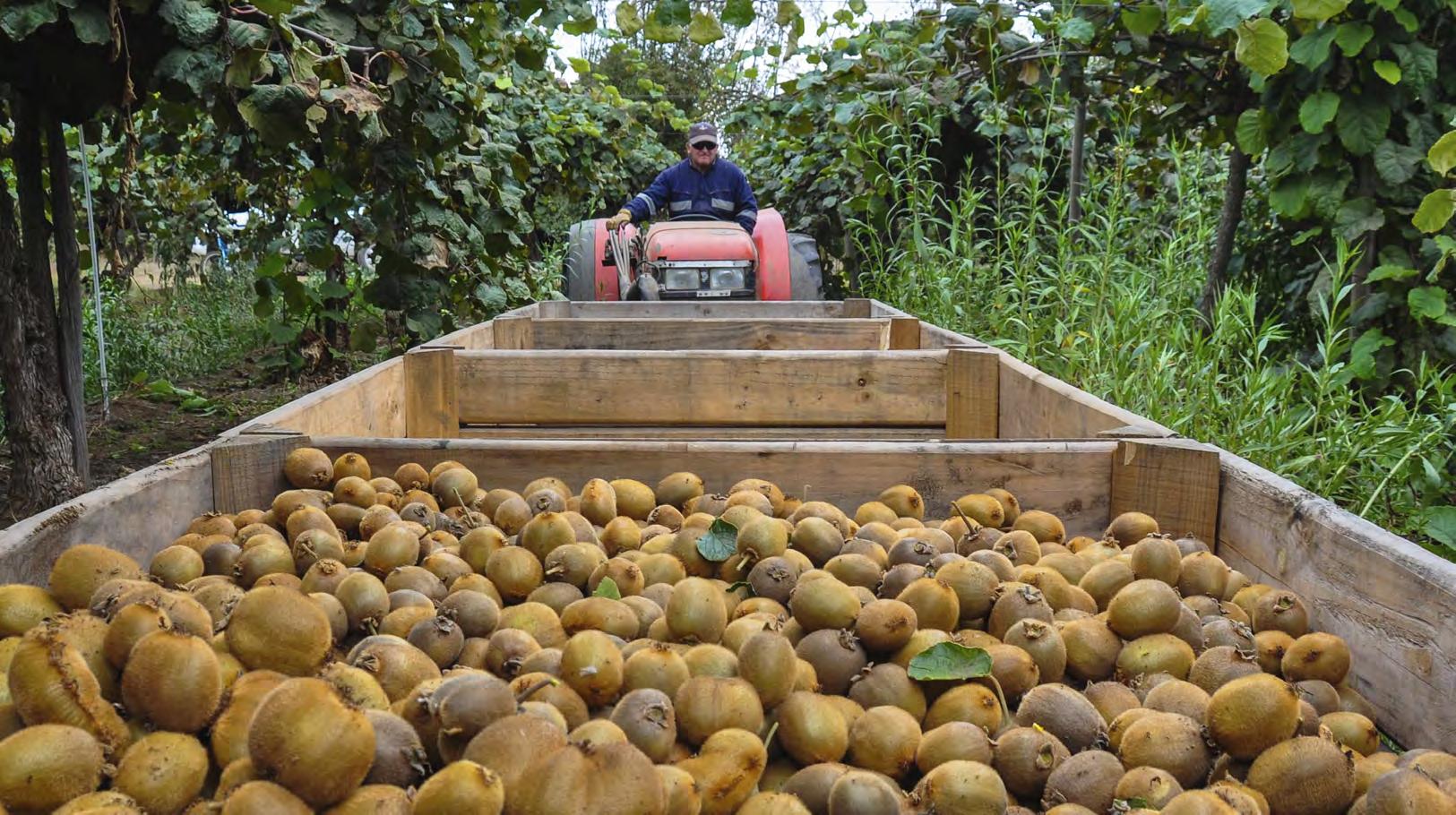
Kiwifruit in a growing queue for more workers
Bay of Plenty kiwifruit growers are nervously eyeing other fruit-growing sectors’ efforts as they wrestle with the potential impact of fewer seasonal workers for harvesting.
By RICHARD RENNIE
With the Covid-19 crisis locking out thousands of Recognised Seasonal Employer (RSE) workers from the Pacific Islands in the short term, the horticultural sector has been lobbying the returning Labour government hard to re-introduce workers from the Covid19-free islands.
This season 14,400 RSE workers had been expected to come to New Zealand, but that number had fallen short by several thousand as the pandemic struck, leaving the kiwifruit sector short staffed, as one of the last crops to be harvested. It is estimated about 4000 workers remain in New Zealand, with a number still to be repatriated.
Government sentiment has been largely focused on ensuring New Zealanders who have lost jobs due to the pandemic have first opportunity to pick up jobs in the sector as they become available.
But despite the growing unemployment numbers in New Zealand, it is still proving difficult to attract New Zealanders to work that is physically challenging, short term, and may require relocation, when the alternative is a social benefit.
RSE unlikely to re-open soon
Prior to the election, signals were the government was unlikely to open the borders quickly to RSE workers. But despite having done so for other select groups of primary sector workers including machinery operators, vets – and most recently the controversial admission of Russian and Ukrainian fisherman, some of whom turned out to be Covid-infected – that does not now seem likely this year.
Minister for trade and export growth David Parker said allowing international workers to fill harvesting jobs would “probably not” happen this year, citing a Kiwis-first policy and constraints on quarantine facilities, despite the Pacific Islands not having the disease.
The period between October-December is the second-highest peak demand period for labour, with staff employed thinning new fruit as it forms.
New Zealand Kiwifruit Growers Incorporated chief executive Nikki Johnson said the group is working to attract New Zealanders to make up for the lack of overseas workers in orchard.
“NZKGI is currently offering potential employees the opportunity to get insight into summer season kiwifruit orchard jobs through one and two-day training courses. In BoP alone over 14,500 people will be required over the coming summer months to prepare vines for the 2021 season.”
Looking further ahead to harvest, NZKGI is confirming its labour attraction strategy, extending initiatives used in
will be critical for the industry to pick and pack the fruit which contributes muchneeded income, not only to kiwifruit-growing regions, but also supports the Pacific Island economies, currently suffering from a lack of tourism.”
New initiatives explored to attract workers
Michael Franks, chief executive of Seeka, the industry’s
Packhouse and picking are very physical jobs, you have to keep up and not everyone is able to… The equation is that when people have a ‘next best’ alternative of social support, do they want to come and pick fruit if they are out of work?” – Stuart Weston
the past few seasons to attract locals to work in the industry.
Johnson said NZKGI is also working with government around mechanisms to allow the admittance of RSE workers to New Zealand before the harvest season.
“Access to RSE workers
largest orchard and packhouse employer, said the company was starting to put initiatives in place to draw in more New Zealand workers.
“We are engaging directly with Ministry for Social Development to maximise that, including pathways and
TRADESTAFF – INDUSTRY LEADERS
Tradestaff are delighted to be one of the first companies in New Zealand to be certified to The Recruitment, Consulting & Staffing Association (RCSA) StaffSure Registry. This industry-led initiative is a trusted platform for businesses to choose a reputable provider with proven business integrity. This helps you to know that you are choosing a reputable provider who has been independently audited against an industry-specific standard. Likewise, our workers can have peace of mind that we are committed to their protection.
training programmes in all the regions we operate in.
“To be honest I think our only hope of getting RSE workers is if we really need them, I do not think we can genuinely ask government for RSE workers yet.”
Franks said it had been a tough run, with the winter pruning programme well down on the usual numbers of skilled migrant workers that came for the job.
A government-sponsored programme to train more that kicked off in June had drawn few participants to a skill that required at least two seasons to acquire.
High churn rate for Kiwi staff
Apata Group chief executive Stu Weston said that while the company had managed to find Kiwi workers for last season as the lockdown descended, there had been a high churn rate with New Zealand staff.
“Packhouse and picking are very physical jobs, you have to keep up and not everyone is able to.”
He said while it may seem simple enough to try and match unemployed workers to seasonal jobs, the two did not always match up well.
“It is very much a wildcard
how things will match up for us. The equation is that when people have a ‘next best’ alternative of social support, do they want to come and pick fruit if they are out of work?”
He maintained it would take a massive pay rise to draw in more New Zealanders to the sector.
“But again it comes down to being fit to work in this sector, regardless of what the pay is.”
Richard Bibby of the NZ Master Contractors Association said there had been little communication from government about RSE proposals.
“We only just have enough RSE workers on the ground now to get through with thinning, but some growers are now making decisions about harvest, and are concerned they may not even be able to pick all their fruit.”
His company was based in Hawke’s Bay, and was presently discussion options to bring in workers and use his company’s worker accommodation as a quarantine facility.
“If nothing is done by November, we are in deep trouble, given the time needed to get visas and medical certificates worked out. If it is not done early, we will be looking at a major calamity.”
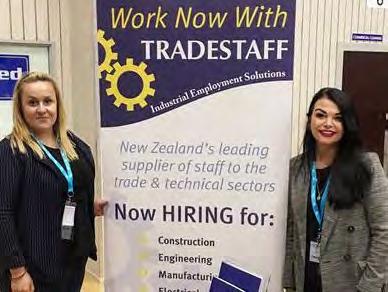


Tarsh Walsh (Left) and Nikita Pierce (Right) ― Tradestaff Tauranga at The Smarter Business Event 2020
Taking stock
Investment market update (for the quarter ended 30 Sep, 2020)

SWHAT TO DO WITH YOUR MONEY
>
BY BRETT BELL-BOOTH
Investment Adviser with Forsyth Barr Limited in Tauranga, and an Authorised Financial Adviser. Phone (07) 577 5725 or email brett.bell-booth@forsythbarr.co.nz.
tock markets have delivered a second successive quarter of strong gains. The performance of financial asset prices since March has surprised just about everyone. This is testament to the unprecedented (a word used a lot at the moment) support provided by central banks and governments around the world.
Whilst most stock markets did take a breather in September, we continue to expect demand for equities will be underpinned by investors seeking returns in an ultra-low interest rate world. This month the US Federal Reserve projected there would be no lift in interest rates until at least the end of 2023, and the market is pricing in the Reserve Bank of New Zealand’s cash rate to be negative from April 2021. Those waiting with cash in the bank for higher deposit rates are likely to remain disappointed.
In addition to stock mar-
kets, another beneficiary of ultra-low interest rates is the housing sector. Around the world house sales, prices, and construction demand have all recovered strongly. The importance of housing to the broader economy should not be underestimated.
Increased housing activity is reflected in areas such as retail, manufacturing, transport, and even the auto industry. Stronger house prices and the positive wealth effect on homeowners is reflected in stronger consumer sentiment and retail sales.
Demand for trucks and vans also tend to rise as those involved in the construction industry gain confidence. For those moving out of the cities and into the suburbs or further afield, a new or second family car is often required for the first time. This has all contributed to the better-than-expected resilience of economies this year.
Growing earnings optimism
The recently finished reporting season, when companies report their financial results to markets, saw better-than-expected outcomes both in New Zealand and offshore.
Businesses and economies are adapting to live with the virus. The “working from home” theme is becoming an at least semi-permanent theme in many economies, with many people moving out of the cities and into the suburbs.
While many countries are seeing new virus cases hitting new highs, hospitalisations and deaths are at a fraction of levels seen earlier in the year.
The risk of most economies being completely shut down again is low. Reflecting more buoyant than expected economic conditions, analysts are now generally lifting earnings expectations for this year and the year ahead. Investors

should be confident that, in general, the trough in earnings is behind us, and a recovery is underway.
Still uncertainty ahead, but stick to the plan
The commentary above all sounds pretty positive. And clearly equity markets have responded favourably. But these remain unprecedented (that word again) times.
We’re still navigating the first global pandemic in over a century. Interest rates are the lowest in history, which may lead to economic imbalances longer term.
Governments are spending
money with abandon, funded largely by central banks printing money, but this can’t last forever.
And early next month we have the important US election. It’s very possible we might not know the actual result for a month or more after the 3 November election date.
Given the recovery in equity market values since March, we note that:
1. Markets are able to remain resilient in the face of bad news,
2. Share prices reflect the long-term earnings companies will generate over the years and decades ahead, not just the next six to 12
months, and 3. It’s not possible to consistently time or predict shortterm movements in markets. Overall, it’s important to establish and remain committed to an investment plan which meets your long-term goals.
This column is general in nature and is not personalised investment advice. This column has been prepared in good faith based on information obtained from sources believed to be reliable and accurate. Disclosure Statements for Forsyth Barr Authorised Financial Advisers are available on request and free of charge.
NZ Forestry high achievers recognised
The New Zealand Institute of Forestry (NZIF) has announced the winners of its 2020 awards.
The forestry sector is a key contributor to the Bay’s economy, not to mention national GDP, and it’s been an exceptionally difficult year for many. NZIF President James Treadwell said the industry was working hard to thrive, given the unique challenges of 2020.
“[But] we’re fortunate with our high-calibre industry professionals who set the standards for others to aspire to,” he said. “The NZIF relishes the opportunity to celebrate with the best of the best and to proudly champion the recipients of NZIF’s awards.”
This year’s recipients have been acknowledged for their diverse range of skills and experience. From hard graft and commitment at the grass roots level, to high level policy planning and execution, and academic leadership. 2020’s New Zealand forestry heroes were named as Bruce Manley, Julie Collins and Adrian Loo. The NZIF has also appointed two new Fellows, Bill Liley and Dennis Neilson. The highest honour in New
Zealand forestry is the Kirk Horn Award, the oldest science award in New Zealand, which went to Bruce Manley. This biennial prize recognises a person for their outstanding contribution to the forestry industry at large.
Manley received the award in recognition of the major impact he has made during a lifetime’s work as a researcher and educator. This has culminated at the University of Canterbury, where Professor Manley is the Head of the Forestry school.
“Highly respected by students and industry members
alike, under his leadership, the forestry faculty has developed into a thriving hub of good practice and innovation, which bodes well for the future of the industry,” the citation noted.
The coveted NZIF Forester of the Year rewards an outstanding contribution to the forestry sector within the year.
The 2020 recipient is Julie Collins. The citation noted that she had demonstrated exemplar leadership, excellence and personal integrity in her work within the industry for decades. Using her impressive body of high-level policy planning expertise, Collins
today heads Te Uru Rākau, the government Forestry Agency.
“She ensures a strong voice for forestry within government and is a key supporter of diversity in the industry, giving her time freely to inspire others,” the citation said.
The Prince of Wales Sustainability Cup recognises the achievements of an outstanding young forest professional who is highly engaged in the principles of sustainable forest management. This year’s recipient was Adrian Loo.
Performing exceptional forestry management work, he is an environmental man-
ager working with the 1BT (1 Billion Trees) programme to encourage new planting. Loo works hard to focus landowners on diversification of land use through the addition of exotic and native forests, the citation said.
He is dedicated to growing the estate in an environmentally sustainable way and actively promoting these concepts to others. A founding member of Future Foresters, Loo is already strongly committed to inspiring others to focus on the wise use and conservation of forests and their ecosystems, the citation said.

The hub of entertainment this summer

As the Hub of Entertainment in the Bay of Plenty, Trustpower Baypark has a huge line-up of events this summer for locals and tourists alike.
Blindspott
Last year, they sent New Zealanders into a frenzy when The Rock announced that the multi-platinum selling band was getting back together, with a longawaited reunion tour of sold out shows across the country.
Just a week into the much anticipated 2020 Blindspott tour it was stopped short as New Zealand went into lockdown. Now they’re back with a vengeance and frothing to get out there for their loyal fans, who’ve been nothing short of amazing. Recent winners of The 2020 The Rock FM’s Rock Wars, the band will be performing their iconic, debut multi platinum album ‘Blindspott’ in its entirety on 6 November.
Speedway
Speedway season is upon us and will enthrall Speedway fans over the summer. Upcoming Speedway confirmed dates for action-packed nights of entertainment include: November 7, 21, December 5, 26, 29 January 5, 8, 9, 16, 29 & 30, just to name a few.
National Weightlifting Championships
Join us for the annual National Weightlifting Championships event 13 – 15 November, as we cheer on the best Olympic weightlifting athletes in New Zealand.
Never been to an Olympic weightlifting event, or don’t know what it’s all about? No problem – they love to share their sport and welcome you to bring the whanau and learn something new. Men’s and Women’s sessions will alternate throughout the weekend. Free entry, all ages welcome.
7 Days Live Tour
Thanks to Partners Life, The Rock & Three, the 7 Days Live tour is now officially a November tradition. And this year our (not very) brave comedians will smash out 13 shows in 13 towns around New Zealand with (nearly) no fear at all. Dodging lockdowns, Jeremy Corbett, Dai Henwood and Paul Ego jump in a van and bring much-needed comedy to the nation, laughing directly in the face of Covid-19 (wearing a mask of course).
Don’t miss this show 20 November – part quick-fire standup from the country’s best, including Ben Hurley, Justine Smith, Josh Thomson and Jeremy Elwood. The com-
Did you want to treat one of your valued clients? Or how about coming to Speedway for your staff Christmas party? We have a number of exclusive, spacious Corporate Boxes with balconies available to entertain up to 20 guests comfortably. Full kitchen facilities including microwave, table, chairs and bar stools. A self-contained refrigerator for ongoing inbox bar service with dedicated corporate box catering stewards for continuous supply along with a high-quality catering service delivered to your box. These boxes are also available on an annual basis to cover the entire Speedway season. Please contact us on events@ bayvenues.co.nz or 07 577 8593 for more information.


pletely un-censored and un-edited 7 Days show is exactly the medicine we need in 2020 (until we get a vaccine that is).
Be there to see our comedy heroes, live.
Rise Dance
Rise Dance operate in multiple locations across the Bay of Plenty and Rotorua, their
experienced dance instructors share a passion for dance with over 900 students weekly. Every year Rise Dance holds an annual dance showcase. Students learn about the theatre/arena, rehearsals and teamwork while they enjoy the opportunity to showcase their skills in a professionally fun production.
The end of year showcase is
a wonderful way for students to show the results of their hard work during the year and for family and friends to join in the pride of their achievement. The 2020 showcase will be on Sunday November 22.
Battle Of The Trades III
Bay Boxfit is proud to bring to you Base Up Battle Of The Trades III on 28 November.
A very popular corporate boxing show which showcases tradespeople challenging themselves by navigating their way through 3 x 2 min rounds against one another. This is a Black Tie event so be sure to dress to impress. For tickets go to www.ticketbooth.co.nz and search for Battle of the Trades Premier Venue
Trustpower Baypark is Tauranga’s Premier Venue for conferences, meetings, entertainment and exhibitions. Offering a complete package in one convenient location that features state of the art meeting rooms, in-house catering, audio visual services, professional conference organiser (PCO) and marketing/promotional services.
New Year – New Meetings
Trustpower Baypark are pleased to offer a “New Year –New Meetings” promotion as a fresh start to 2021 for all of your strategic planning, training and team building needs. On offer is a 25% discount for small meetings confirmed before 23 December, 2020 and held between 5 January – 31 March 2021. The 25% discount applies to Venue Rental, Audio Visual, Catering and Baystation and is subject to availability.
Virtual meetings
You can also “Bring your events online” with our Virtual Meetings. The range of onsite and offsite services include: Remote Presentation, Video Conferencing, Web Streaming and Streamed Hybrid Conferences. The Virtual Meeting services also include purpose-built studios to broadcast standard offering competitive packages to enable you to continue to stay connected to your audience. Ask about our competitive packages today.
Rise Dance:Annual showcase. Photo/Supplied.
Blindspott:To perform multi-platinum album in entirety. Photo/Supplied.
NationalWeightlifting Championships:Top Olympians atTrustpower Baypark. Photo/Supplied.
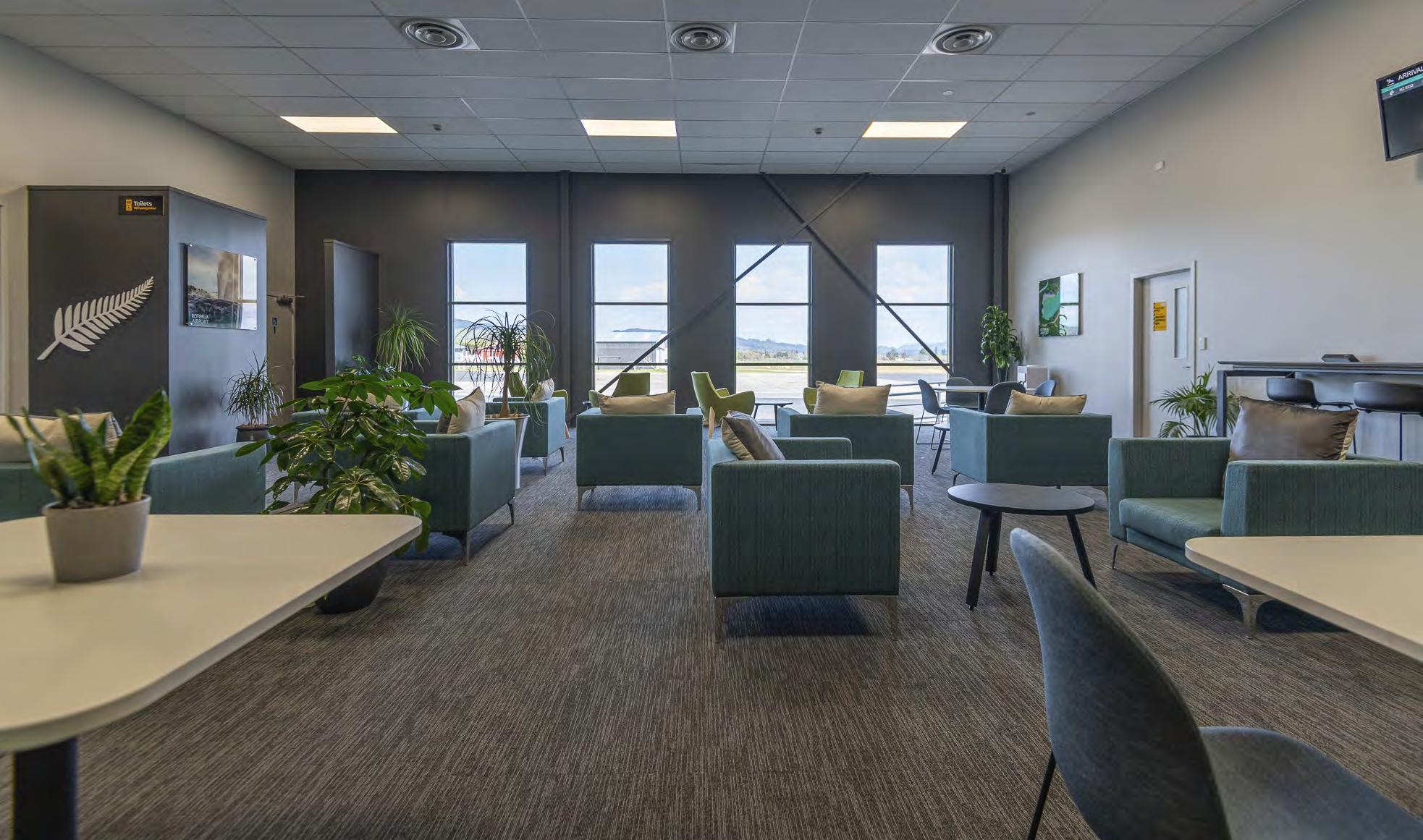
Rotorua Airport opens its new Business Hub
Rotorua Airport has recently formally opened its new Business Hub.
BY DAVID PORTER
The Business Hub took five months to complete and the official opening was delayed by Covid-19, but airport marketing and digital manager Michelle Herrick says having the Business Hub open to locals and visitors showed that Rotorua was evolving.
“It shows we are moving ahead of the times and the airport is instrumental in offering above and beyond its requirements as a regional airport,” she said. (Bay of Plenty Business News will be running a Special Focus on the redevelopment of Rotorua Airport in its January 2021 issue.
“The lounge, in the airport’s arrivals terminal, offers
The response so far has been really positive - it’s created a real talking point through the business community in Rotorua.” – Michelle Herrick
a range of seating options from relaxing loungers, conversation seats, bar desks and comfy couches,” said Herrick
“The decor is modern, there are USB and power stations throughout the room, we have TV with current affairs, a water station and food and beverage available through the amazing Terrace Airside,” she said.
The Business Hub has been
designed to offer a relaxing space for travellers to catch up on work and emails while waiting to board. Herrick said the airport believed there was a need for the business lounge, with more than 50 people signing up as hub members in the first week.
“We plan on growing this over the next few months through advertising and social
media,” said Herrick. “The response so far has been really positive – it’s created a real talking point through the business community in Rotorua.”
Herrick said the Hub had been designed to give back to the community and create an exceptional customer experience for travellers through the airport.
The Hub is also available for group bookings, meetings and events etc, which the airport’s managers believe will in time create its own income stream.
The airport has not disclosed the cost of the Hub facility, but stated it was the design and fit out of an existing room and was budgeted for in the previous financial year.
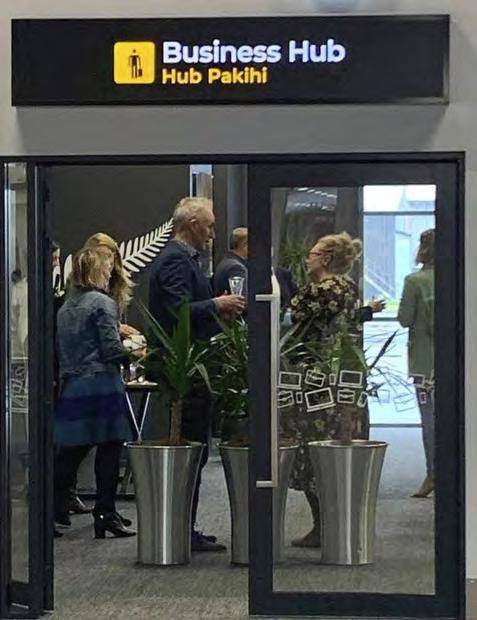
Visit the new business hub at:
new, free facility for all business travellers. Sign in:
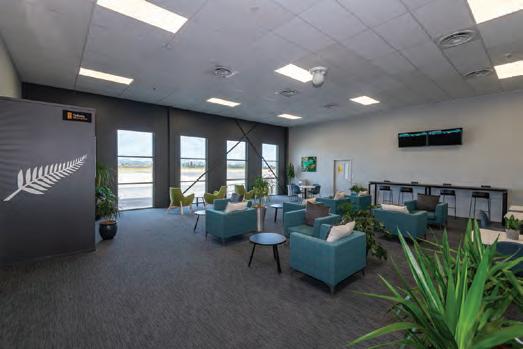
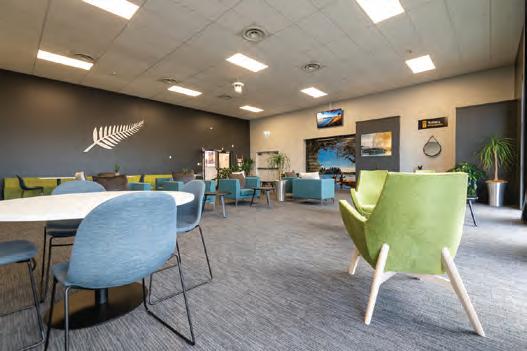
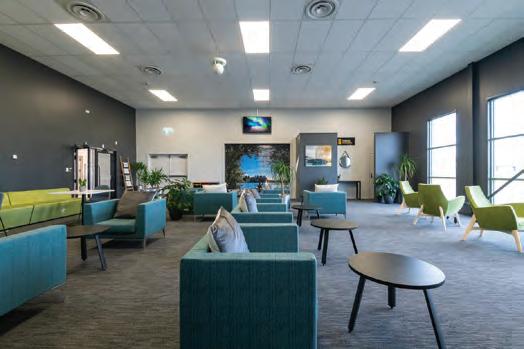
“Our ultimate vision for the Hub is to offer an innovative space for travellers to visit and enjoy with views over the city and a relaxing space to catch up on work in a quiet environment.”
Emerging trends and opportunities
Towards the end of each year I write on what I see as the emerging trends in franchising for the coming year. If 2020 has taught me anything, providing predictions is a dangerous preoccupation, so this year I am going to keep the focus a little tighter and answer the question: in the current environment, are there opportunities in franchising?
The simple answer is yes. Let’s look at the economic and social environment and then a delve into what sectors and specific industries are currently providing the strongest opportunities.
The economic environment
Generally, franchising is anti-cyclical to the economy. When the economy is upbeat, less people make the jump from paid employment and lower unemployment means there are usually less people looking to start their own business out of necessity.
The recession that followed the Global Financial Crisis (GFC) was unusual as unemployment did not rise as much as previous recessions. Our current recession has already seen an increase in unemployment and an increase in demand to buy into franchised businesses. Is it necessity or opportunity?
We have historic low interest rates, which look to be around for some time and the impact on business borrowing cannot be stressed enough. Adding to this that a significant amount of business borrowing in New Zealand is secured against or funded by equity in homes, the lower interest rates have a double whammy – ie, lower rates on both their franchise business loan and the home loan.
There has however for several months been some query around the banks’ appetite for business loans and we are certainly seeing them be more cautious. However, franchises often provide more comfort for the banks due to lower failure rates, their ability to benchmark and they generally know what is and should be happening in a business at any time.
High property prices
The New Zealand mood lifts when property prices go up.
One sector that has gone from strength to strength is cleaning and hygiene. Traditionally seen as a low entry point franchise model, this category has seen massive increase in demand and opportunities for new franchisees.”

FRANCHISING
>
BY NATHAN BONNEY
Nathan Bonney is a director of Iridium Partners. He can be reached at nathan@iridium.net.nz or 0275-393-022

The current runaway property market in Auckland in particular is raising some smiles for those already on the property ladder. These are often also the people looking to make the jump into a franchised business, so the triple whammy, added to lower interest rates is an increase in potentially available equity for many.
The figures for the amount of money captured in the New Zealand economy from Covid-related travel restrictions is quite incredible. In spite of the demise of international inbound tourism, in September the New Zealand balance of trade recorded the highest trade surplus in more than five years.
This is a lot of money staying in, and being spent in New Zealand that was leaking over-
seas. We have read the articles on high end cars sales going through the roof as people cannot take their overseas holidays. There is also a renewed sense of wanting to spend locally. We will come back to how this is playing out.
Promising industries or sectors
So with some of the economic conditions favouring business growth through franchising generally, where are the current hot spots and opportunities by sector?
• Essential services. Basically, any services that were able to trade through lock-down have performed extremely well. However, over the past six months, one sector that has gone from strength to strength
Our current recession has already seen an increase in unemployment and an increase in demand to buy into franchised businesses.”
is cleaning and hygiene.
Traditionally seen as a low entry point franchise model, this category has seen massive increase in demand and opportunities for new franchisees.
As demand matures, brand and delivery will become that much more important and the well franchised, well-managed, marketed and reputable
systems will further prosper.
This provides opportunities for not only new entries, but for independents in the industry, including larger firms, to join franchise systems due to high demand levels and benefit from brand awareness, which you could argue was previously largely irrelevant.
• Online and on demand
goods and services. Already a macro-trend of our times, this has been accelerated by weeks of us being locked at home. For the food and beverage industry this means models that have a strong delivery or pick up model and a technology and perhaps internal delivery platform to match.
Sales continue to be strong and defy expectations. Small footprint, suburban and regional distribution capabilities are also performing well. This bodes well for would be multi-site franchisees that have the capacity to capitalise on opportunities and spread future risk by operating across multiple sites and markets, or perhaps across brands.
• Home improvement and renovation. Back to our closed economy comment, there is currently a massive increase in demand for home renovation and improvement services, and long-life durables. Franchised businesses and brands in this space are doing extremely well. In the case of property related, rising property prices tend to encourage people to spend more on refurbishments and improvements.
• Flexibility. This year has demonstrated a need to be flexible in so many areas. For many individuals, this flexibility is a new-found interest in achieving a work-life balance. Looking towards franchised businesses that provide flexibility in working hours and/ or location, such as a man in a van type business with relatively low ingoing cost, can provide such an option.
At the other end of the investment spectrum and the yet completely unanswered question is the future of CBDs and centralised work. Flexible work space and decentralized work locations provide a huge opportunity for individuals and landlords. So yes, whilst we have some serious dark skies ahead of us, there are plenty of opportunities in franchising.
BEWARE OF FOREIGN IMITATIONS.
There’s no shortage of great ideas in New Zealand. But for an innovative bunch, we’re not the best at realising the full potential of our innovations, particularly when exporting them.
At James & Wells, we can identify your competitive edge, offer business strategies for specific markets and help you own and leverage your intellectual property to ensure no one steals the fruit of your labour.
IP and social media – mind your Ts, Cs, Ps and Qs
Social media is a powerful marketing tool. Just ask all those small businesses who have signed up this year to Facebook groups like Chooice (originally called New Zealand Made Products).
If used and managed properly, platforms like Facebook can significantly contribute to brand growth. If not used and managed properly though, they can impede growth.
From an IP perspective, managing social media is just as important as using social media.
Here then are a few things I recommend businesses do.
Mind your Ts
Your principal trade marks
– be they names or logos –should be registered.
They should be registered not just because registration of a trade mark provides the best protection against infringers, but because registration is
very important when it comes to enforcing trade mark rights on social media.
Registration is very important because the online complaint forms used by Facebook, Instagram, and Twitter, for example, all request registration details.
If your trade mark is not registered, you risk any complaint you make against unauthorised use of your trade mark – by a competitor or influencer, for example – not being upheld and the unauthorised use continuing.
Mind your Cs
Copyright works include logos and photos, as well as sound recordings and films. Logos, photos, music and

videos are all used extensively on social media – sometimes, however, without the copyright owner’s permission.
When this happens, it is important for copyright owners to assert their rights.
The requirements for enforcing copyright rights on social media are very similar to the requirements for enforcing trade mark rights: you must provide details of your copyright work and an authorised example of your copyright work in action.
If you can’t readily provide these, as with unregistered trade marks you risk your complaint not being upheld and the unauthorised use of your copyright works continuing.
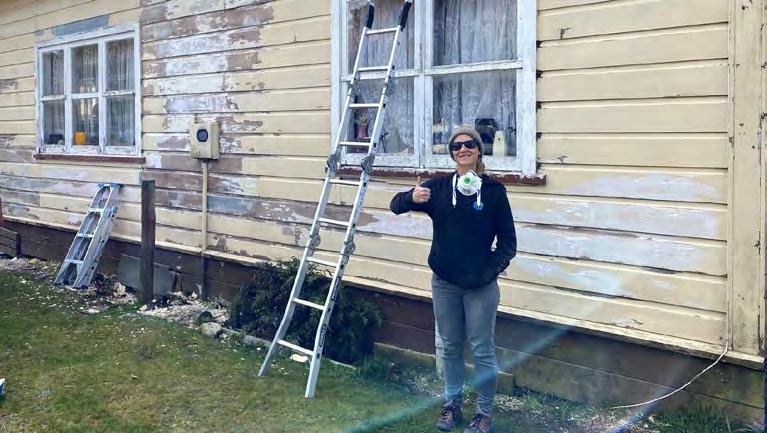

Mind your Ps
INTELLECTUAL PROPERTY ISSUES
> BY BEN CAIN
Ben Cain is a Senior Associate at James & Wells and a Resolution Institute-accredited mediator. He can be contacted at 07 928 4470 (Tauranga), 07 957 5660 (Hamilton), and benc@jaws.co.nz.
your use of their product.
You should get permission if you want to use another company’s logo or products in your social media content.
If you don’t get permission, you will infringe copyright in that company’s logo and could be in breach of the Fair Trading Act for giving a false or misleading impression that the brand owner has approved
Mind your Qs
New Zealand is a liberal, multi-cultural country, with many different ethnicities.
Businesses should give plenty of thought then to Principle 1 of the Advertising Standards Code: “Advertisements must be prepared and placed with a due sense of social
responsibility to consumers and to society”.
Businesses who don’t take this principle into account could find themselves not only on the end of a complaint to the ASA, but also at risk of losing customers. And which business at this moment in time wants that?
Finally, I would like to wish all readers a safe and happy Christmas, and a healthy 2021.
020 has been challenging for many people in our region, and most charitable organisations, as well. It might be hard for businesses to know what tone is right for Christmas presents or celebrations for staff and clients this year.
Many companies are choosing to take a quieter approach, and for them, a gift to the community might just be a perfect fit.
The Acorn Foundation is well-positioned to support a company’s holiday giving goals:
• A gift to the Acorn Foundation Vital Impact Fund supports organisations working in the areas of greatest need in the community, including our 2020 recipients: St. Peter’s House, Grief Support Services, KidsCan Charitable Trust and Sustainability Options. Findex Tauranga has chosen the Vital Impact
Fund as their charity of choice for November.
• More than 40 charitable organisations have set up a Community Group Fund with Acorn. This funding method provides long-term, guaranteed income once a fund reaches $50,000. We have options in categories including health, creative pursuits, animal welfare, heritage, sport, the environment and others, so it is very likely that we have a fund that fits a company’s culture.
• Acorn also helps facilitate pass-through gifts directly to a charity chosen by a business or can recommend organisations doing wonderful work in the Western Bay of Plenty. At the end of this difficult year, it might be a great time to pause, reflect, and give
Sustainability Options (pictured) is one of the organisations who have benefited from theAcorn FoundationVital Impact Fund.
Birth of the human firewall
Cyber security threats are ever evolving and continue to be a risk to our businesses; what are some of the common ones and why can investing in the human firewall assist?
The latest wave of cyber security attacks targeting New Zealand businesses were designed to disrupt and exploit operations.
In some of the most high-profile cases, a distributed denial of service (DDOS) attack was used, where a large number of devices (bot-net) targeted a particular service with the goal of making it unusable.
Other wider cyber security threats such as extortionware, ransomware, malware, unpatched vulnerabilities and the exploitation of remote access technologies are also increasing.
There are technology tools (devices and software) that can be put in place to counteract some of these attacks.
However, technology is great until people get involved, so the biggest threat is how we, as humans, respond and react. The most common types of attacks that are evolving and developing are social engineering attacks.
What is a social engineering attack?
This is where an attacker uses human interaction (social skills) to obtain information in order to gather or encrypt organisation and personal data
to sell or to generate some form of payment.
If an attacker is not able to gather enough information from one source, it may go through another source within the same organisation and rely on the information from the first source to add to his or her credibility.
Social engineering attacks are commonly classified as follows:
• Phishing is the most common type of social engineering attack and is usually delivered in the form of an email. However, attackers may also use social media, SMS, or some other form of communication.
The attacker will impersonate a trusted entity, such as a work colleague, bank or reputed organisation, in an attempt to fool the victim into clicking on a malicious link or downloading an email attachment containing malware.
• Spear-Phishing is a targeted phishing attack. They are targeted to a specific employee within an organisation, newer employees for example, as they may be easier to fool and compromise.
• Whaling targets high-ranking employees within an organisation. These might be CEOs, CFOs or other senior executives, and the goal is to gain access to high-value
data. Attackers will also target Government agencies, in an attempt to obtain classified information. A bigger target with a bigger potential payout.
• Baiting, as the name suggests, is where traps are set up in order to entice victims into handing over credentials or installing a malicious program. The “bait” can be either a physical object, such as a USB drive left lying around, or a link to a malicious website/application, which offers a voucher or a free product or service that users might be interested in.
• Vishing is where the attacker uses phone calls to trick the victim into handing over valuable data. The attacker will setup a fake phone number, and call the victim claiming to be their bank, or some other trusted entity, asking them for their account details.
• Scareware is designed to scare victims into handing over sensitive information. It often presents itself in the form of a pop-up, informing the victim that they have been infected with a virus, and they need to install their software to fix the problem. Of course, the software they install will be malware. Alternatives try and shame users into paying protection against discloser of their browsing habits to their


partners/family or friends.
TECH TALK
>
BY TONY SNOW
Tony Snow is chief executive and co-founder of Stratus
He can be contacted at Tony@stratusblue.co.nz.
gates, fences and locks on your house.
The best way to combat these daily (per second) threats is to look at your technology solutions, IT infrastructure and potential areas of vulnerability to enable you to put in place tools, systems and a culture that can prevent attacks getting through. You must also have a recovery plan for when the worst happens.
Security technology such as Firewalls and antivirus software should be installed to protect your IT devices and infrastructure; these perform the same kind of functions as
With social engineering threats you should also develop a Human Firewall.
This can be done by educating your team using a continuous security training program that covers what to look for; what procedures to follow; and what notification processes they need to take if subject to a potential attack.
By informing and upskilling your team in this area you can save your business considerable time and money whilst also protecting your
professional and commercial reputation.
Prevention is better than the cure, so talk to your IT teams as a matter of priority about whether you have the right security tools, including security awareness training, to protect your business.
Finally, don’t forget that the Privacy Act 2020 comes into force on 1 December this year. Ensure you are up to date with how it affects you and your business by logging on to the website of the Privacy Commissioner at https://privacy.org.nz/
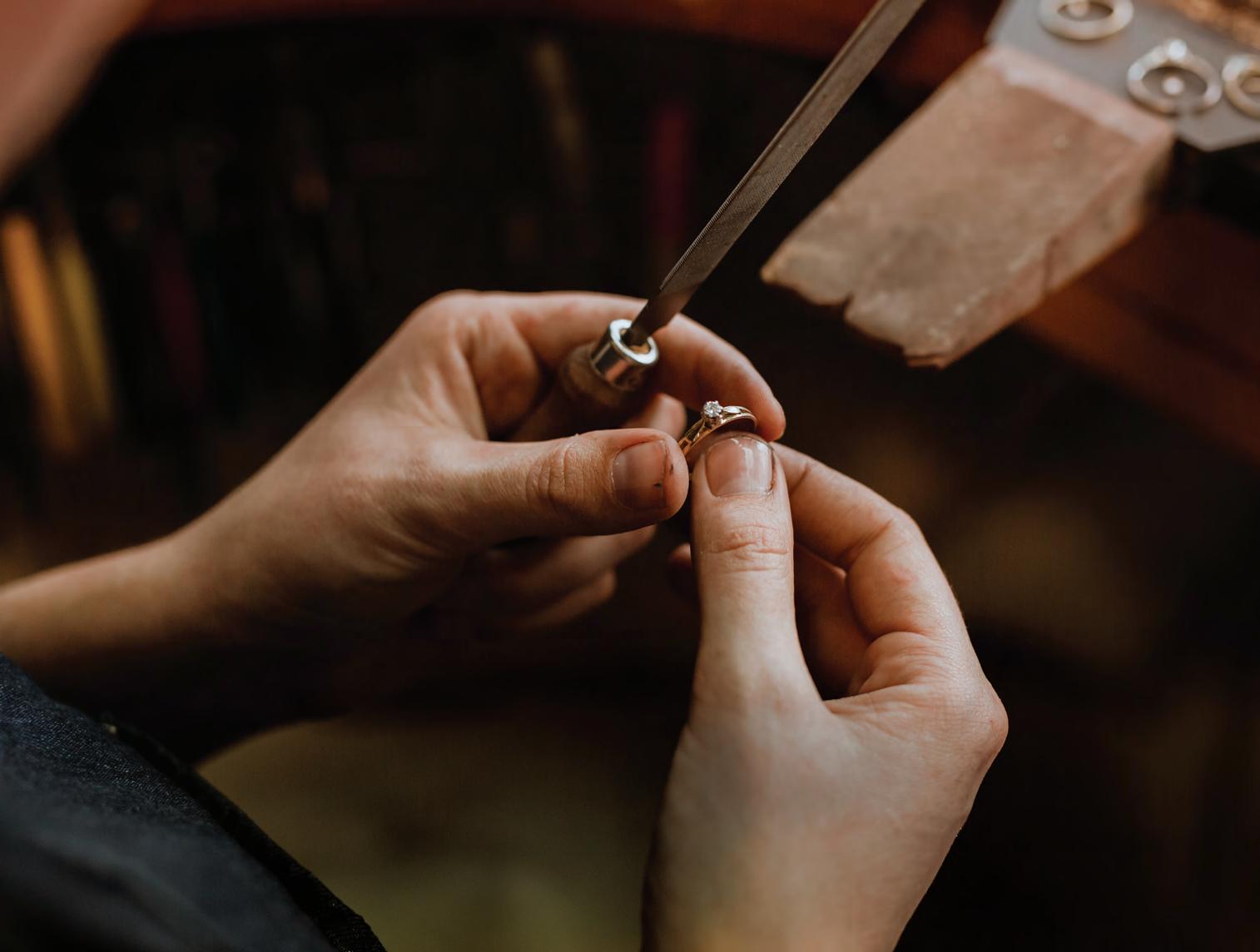
Blue.



Tauranga Rotorua Hamilton Auckland
Enterprise Angels – meet members and learn more
Enterprise Angels has been a key component of the Bay of Plenty’s entrepreneurial ecosystem since its launch in 2008. Enterprise Angels connects early stage companies with business angels to maximise success, believing that growing innovative, socially and environmentally responsible companies is the key to ensuring people, communities, businesses, the environment, and the economy thrive.
Why is angel investing more important now than ever?
In any given economy, startups account for over 45 percent of all net new job growth. Enterprise Angels portfolio companies alone have enabled 1,500 jobs, 350 of those local.
And in tough times, there are always opportunities. As Nina Le Lievre notes, some great companies have been launched during weak economic periods.
“There will be growth sectors in an environment like this – startups creating efficiency products and services as well as improvements in remote capabilities to name a few and these startups will require capital and support to grow” she said.
Enterprise Angels has continued to expand to over 200 members, three well-supported early stage funds, and impact investing.
Since inception Enterprise Angels has facilitated investment of $50.2 million* in 91 early-stage companies.
Evolving to be the largest and best-resourced angel group in the country, Enterprise Angels has members from all walks of life and welcome you to find out more, attend a Pitch Night and network with like-minded individuals.
Why become a member of Enterprise Angels?
Hear from a handful of our members below on why they enjoy being a member of Enterprise Angels.
“I like finding out about new cool stuff, meeting the people involved, participating and seeing how I can help.” – Deborah Crowe
“Being in the angel space provides me with the opportunities to learn new ideas, work with motivated entrepreneurs and be part of the journey of young high growth companies, which I find very exciting.” – Julian So
“It’s fun! I like the feeling of a more engaged form of investment. Angel Investing is more personal than the share markets. It can be addictive!” – Peter Tinholt
“Social interaction with likeminded people, hearing new ways of making money and being ahead of the game.” – Neil Craig
“When I became a member of Enterprise Angels investment network twelve years ago, I saw it as a way to give back to the business community. In fact, being an Enter-
ARE YOU:
CONNECTED
Successful business person with national and/or international connections
COLLABORATIVE
Desire to get involved in a collaborative and communicative community
ENTHUSIASTIC
Enthusiastic about entrepreneurship and start-up business
SUCCESS DRIVEN
Thrive on helping others succeed and improving the start-up eco-system
RISK TOLERANT
Have a high risk tolerance for at least a portion of your investment portfolio
EXPERIENCED
Have business and specific sector expertise
*All Angel Investors in New Zealand must qualify as Wholesale Investors under the Financial Markets Conduct Act 2013.

prise Angels member has given back to me. I have increased my skills, mixed with a group of high calibre individuals, and I am constantly excited by the tremendous amount of innovation coming out of New Zealand. It’s fun to be a part of and contribute.” – Daryl French
“I love seeing fresh, new and innovative ideas, and being able to help turn them into commercial reality. I never cease to be amazed at the wide array of very clever stuff that we get to see as angel investors. And then, by our contribution of capital and often mentoring

Meet Richard. A partner at Sharp Tudhope Lawyers specialising in commercial law. Richard has expansive corporate / commercial legal expertise with a particular focus on mergers and acquisitions and in assisting both investors in, and founders of, early stage companies. Richard gained his experience both in New Zealand and Australia, having practiced in Melbourne from 2013 to 2017. In addition to advising early stage ventures in a legal capacity, he also enjoys participating in Tauranga’s Angelic Drop in Clinics. He is a member of the Institute of Directors and on the Board of Directors for EA GP Limited.
and contacts, the real buzz comes from seeing these start-up businesses grow and mature. From very humble beginnings we have built some of them up to become significant exporters, employers, and profitable enterprises.”
–
Murray Denyer
Join us at 2020’s last Pitch Nights
5-7.30pm Tuesday, November 17
5-7.30pm Wednesday, November 18
For more information and to register please visit enterpriseangels.co.nz/ events_calendar
Our members and partners are the heart of our business, without them we wouldn’t be where we are today.
Growing businesses takes more than just capital; expertise and connections are essential. Our most active and engaged members supercharge our portfolio companies’ growth. Could this be you? If the above resonates with you, and you would like to find out more we encourage you to come along to our last Pitch Night for 2020. For more information and to register please visit www.enterpriseangels.co.nz/events_calendar/ Alternatively arrange a meeting with CEO Nina Le Lievre: nina@ enterpriseangels.co.nz or phone 07 571 2520.

Meet Ian. Ian has been involved in the kiwifruit indus try since completing his degree at Massey, Palmerston North. He worked his way up through the ranks from field rep to the Post Harvest industry as general manager of Seeka Kiwifruit Industries Ltd and then into political and governance roles. He is a retired director of Kiwifruit New Zealand – the industry regulator which he served on for 15 years, and retired chairman of Seeka Growers Limited. During the kiwifruit Psa outbreak Ian was the national recovery manager under the Adverse Event as well as consulting to Kiwifruit Vine Health which coordinated the industry response to the disease. In 2020 kiwifruit Industry honoured him with their highest award – the Hayward Medal Outside of work, in India, Ian and his wife have undertaken charity work for a decade funding and established micro-enterprises that employ people out of poverty. Ian is passionate about making a real different and enjoys the chance to see real change through his investments.

Richard Hoare
Ian Greaves
The impact of Covid-19 on business acquisition
I commonly get asked “what is this business worth” – and the answer usually starts with “it depends”. Well, it now depends a wee bit more, given the impact of Covid-19 on business valuations.
Abusinesses value is driven by numerous factors, but is understandably very dependent on recent financial results. Where those financial results are weaker due to Covid-19 then a purchaser must determine whether the business will revert to average results in the coming months and years, or whether there has been a fundamental shift downwards.
Only a few months ago one could have thought we would see business valuations decreasing given the perception of weak financial performance between April and June 2020 across a number of industries, expected weaker financial performance going forward, and the lack of confidence in the future (particularly with regards to the border and when and how that may reopen).
However, I am seeing the opposite of this – business values are being supported by:
• Not that many good businesses on the market.
• Plenty of buyers – these include people looking to buy a job, those coming back from overseas and people who are changing direction and want more control of their lives by being their own boss.
• Cheap interest rates – the

Average [house] prices were predicted to drop nine percent due to Covid – but instead appear to be up more than 10 percent.”
borrowing capacity of someone at four to five percent interest rates is dramatically changed when you start talking about sub 2.5 percent rates for housing debt.
• The realisation that the world did not end after all. Most people I meet are confident about the future. The fear of those early days at the start of Level 4 lockdown seems well past.
Many business brokers I
Asset values are expected to continue to be strong. No-one is expecting significant changes to the business landscape from the new government.”

BETTER BUSINESS BUYING
> BY TOM BESWICK
Director at Ingham Mora Chartered Accountants in Tauranga, is a business advisor who specialises in buying and selling businesses. He can be contacted on 027-5744- 019 or tom@inghammora.co.nz
talk to would sell many more businesses if they could find the listings. Interestingly, it seems to be the same for real estate brokers. There seems to be a good correlation to the housing market. Average prices were predicted to drop nine percent due to Covid –but instead appear to be up more than 10 percent.
Now I have no information to say that values of businesses have increased (there is often quite a lag from a deal
being signed – then settled –and then again to receiving reports on clear trends). But I certainly have not seen anything to say they have dropped. The reasons above for the support of business values look likely to continue for the foreseeable future.
I have not heard anyone picking a lift in interest rates anytime soon. Asset values are expected to continue to be strong. No-one is expecting significant changes to the busi-
ness landscape from the new government.
Of course, my views are an average of what I am seeing and hearing. Many businesses have been significantly impacted by Covid-19 and the uncertainty of when the border will open.
A heated market housing market can mean that less homework is done before purchase. It can be the same for businesses. Do not let FOMO cause you to buy a leaky one.
How culture can complicate credit
It is so easy to become judgemental or critical of the behaviour of others when we view them through our own behavioural and cultural filters especially when those behaviours appear to contradict our own moral boundaries.

ICREDIT CONTROL
> BY NICK KERR
Nick Kerr is Area Manager BOP for EC Credit Control NZ Ltd.
He is also a director of International Private Investigations Ltd.
Nick can be reached at nick.kerr@eccreditcontrol.co.nz
n my experience in the collections and asset recovery industry I have had many occasions to see many examples of what I would term unbelievable beliefs and behaviour.
That is, until I stop and attempt to view them through the debtors’ eyes and see what could have led to these responses being so ingrained.
For example, a few months back we received a strange phone call from one of our outof-town repossession clients.
The client told us that a vehicle with almost $10,000 owing on it had been deregistered and the reason given to land transport for the deregistration was “vehicle removed from NZ”.
Understandably alarmed, our client asked if we could visit with their debtor as soon as possible to find out what had happened.
We arrived at the property
and found the debtor at home.
We asked him if he indeed had the vehicle and he told us “no, I have sent it to my sister in the Islands yesterday”.
We explained to him that it was a breach of his agreement with the finance company to remove the vehicle from New Zealand and send it to his sister. Not only did he still owe a substantial amount on the vehicle already, he was in fact two months overdue in his payments.
He explained to us that he had lost his job a month ago and that his sister in the islands had kids and her car had broken down.
The logical solution to this in the debtor’s eyes was to spend $2,000 that he didn’t have, to send a car that he didn’t completely own and could not afford to make payments on, to his sister as she was in need. The thought of the legalities or contractual
ramifications did not even enter his mind.
The initial thought in my mind was simply: if you owe money on something then it is not yours to give away.
The debtor explained to me that he was from a small village in a small island country. There everything that anyone had was shared with everyone else, no matter what it was, including food, water and clothes. And in a case where one family member has two of something and another has none, then there was an absolute expectation that it would be shared and it would be unthinkable to not to do so.
We told the debtor that our client could take legal action for the removal and discussed the options with the client, as the debtor had been a long-standing customer with a great credit rating.
Our client agreed to an arrangement rather than hav-
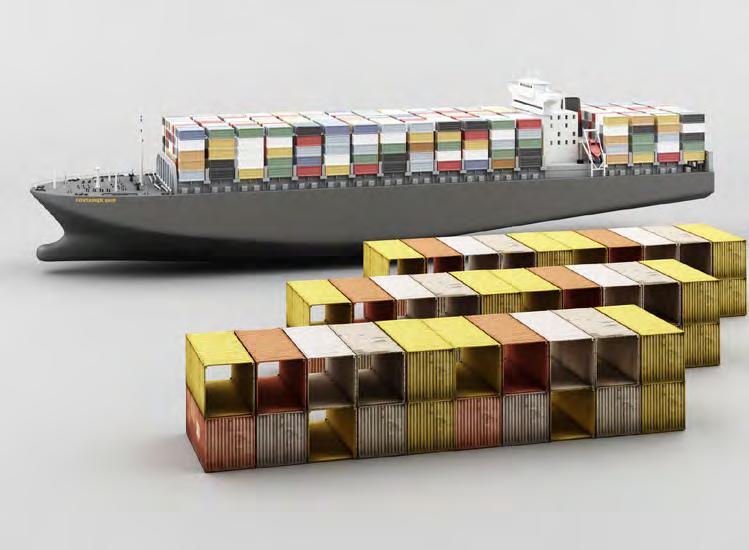
It would have never occurred to our very experienced lender client that he would have to tell a borrower they were not allowed to send the cars they are financing overseas until they are paid off in full.”
ing an overseas repossession warrant executed and incur the huge legal cost that would be involved.
It would have never occurred to our very experienced lender client that he would have to tell a borrower they were not allowed to send the cars they are financing overseas until they are paid off in full. But as our country becomes increasingly multicultural and the clientele of the
lenders become more diverse, maybe in the future it wouldn’t hurt to make this point.
As I have touched on in previous articles, we have encountered a real issue with some recent migrants not understanding some of the finer points of financial agreements, points that most people that have been brought up in New Zealand would see as ones that are a foregone conclusion.
To be fair I would struggle myself if I moved to the other side of the world and signed an agreement in a language that is at best second to me, written to legislation that I have never been exposed to within a culture that is new to me. Maybe some kind of info pack or freely available advice to new migrants could prevent a few of these misunderstandings. Just a thought.

CONNECTING BUYERS AND SELLERS OF QUALITY BUSINESSES
When is the right time to sell your business? Right now.
At TABAK, we promise to guide you through the sales process with focus, integrity and complete confidentiality.



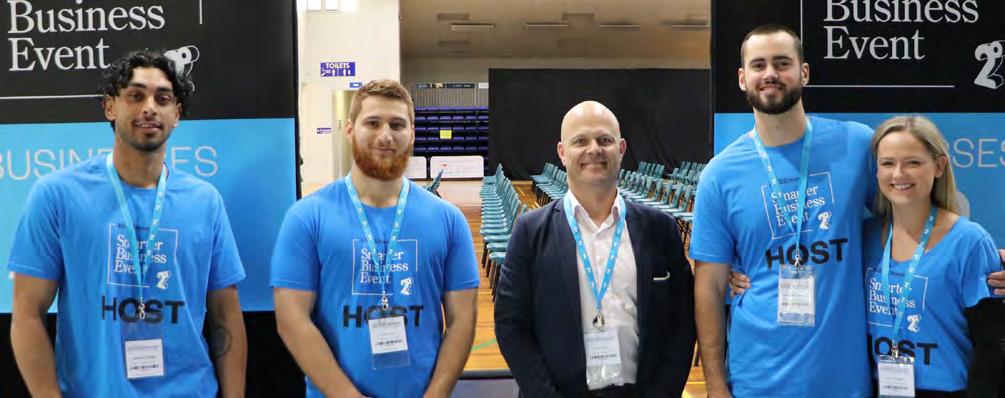
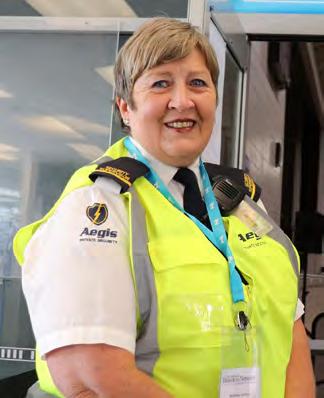

WHY TABAK





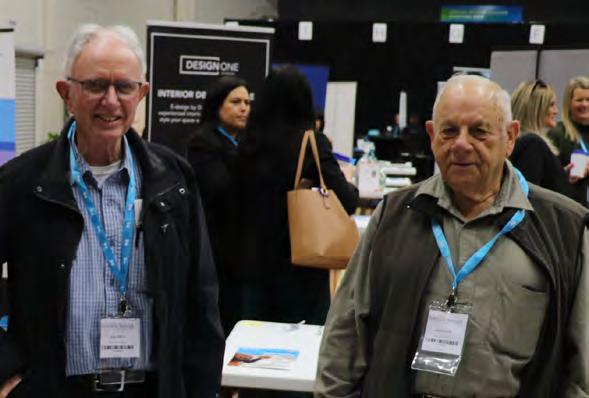
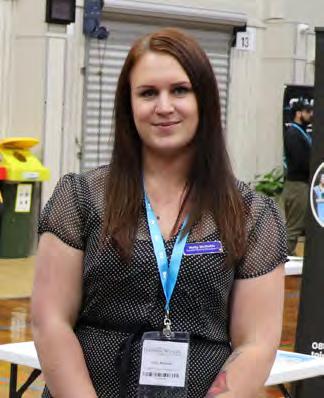
1 7 5 2 8 9 6 3 4

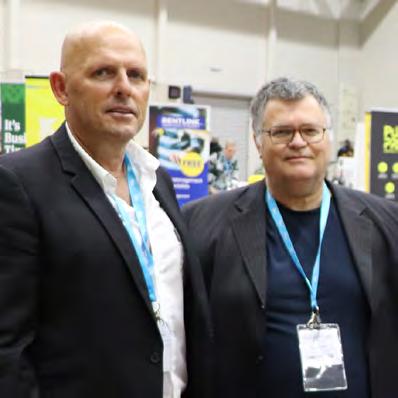
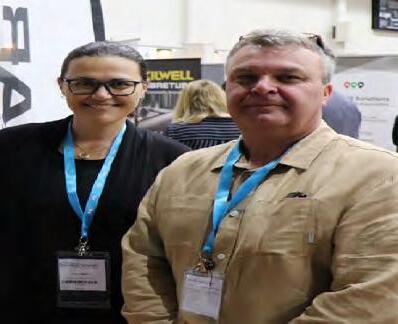

1 Liveleen Sjohal,AlexTe Paa,PeteWales,JamesArrowsmith,KiaraTempero (The HostTeam – Smarter Business Event 2020)
5 Jon Price,Henry Kane (GPS Profit Solutions). 6 Alan Neben,David Porter (Bay of Plenty Business News).
2 Heather Jones (Aegis Security). 3 Nikeey Silwal (Rotorua Chamber of Commerce). 4Arron Edwards (Bravesight).
7 Holly McNabb (Rentlink). 8 Jodee Mills,Dean Lawrence (Marra Construction). 9 JamesArrowsmith (HOST – Smarter Business Event 2020).
Networking photos from The National Business Network Smarter Business Event
Photos by Dylan Mcneely
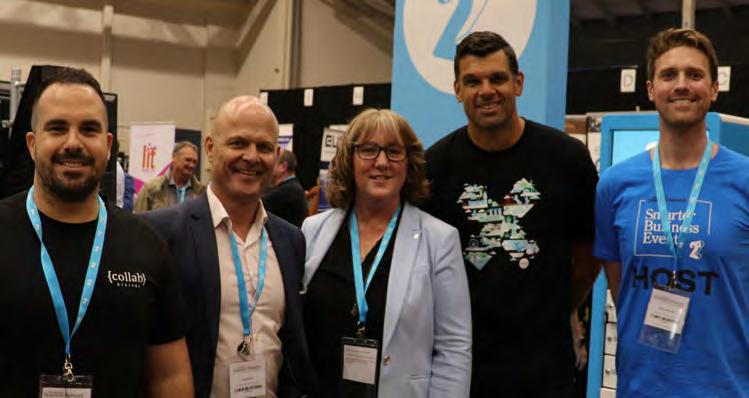


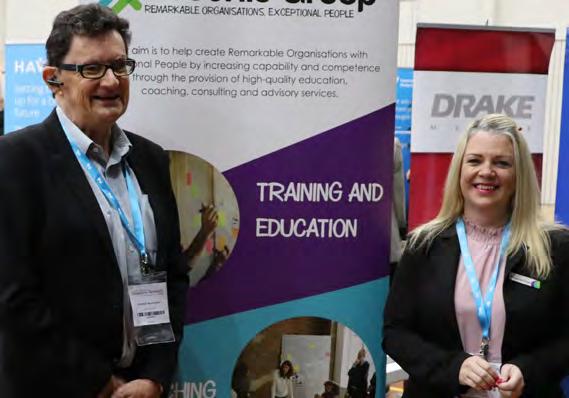



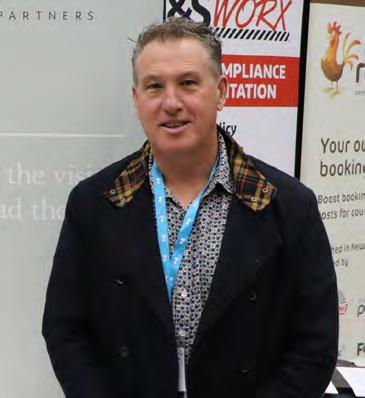

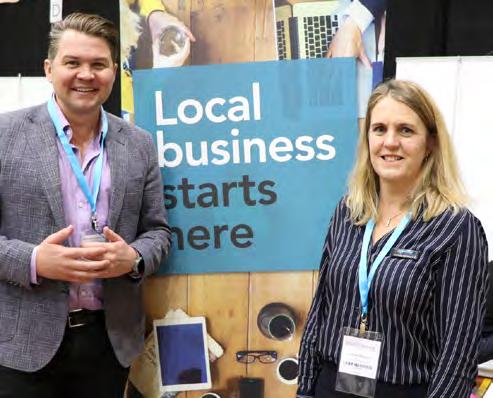
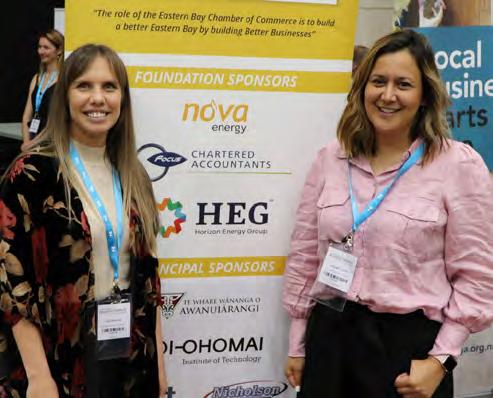
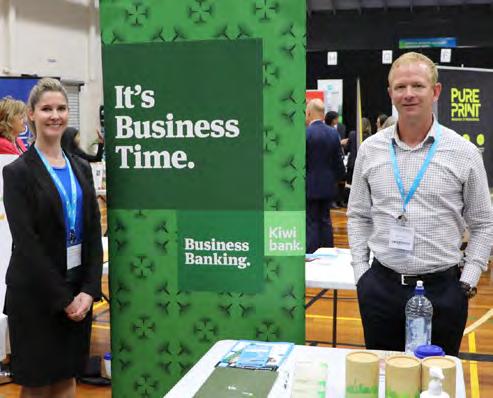
10 Brent Ireland (Collab),PeteWales (Smarter Business Event 2020),Kirsten Patterson (Institute of Directors),Craig Hudson (XERO),Will Johnston (MC,Smarter Business Event 2020). 11 Andrew Fairgray,AliAwais,Shamal Kumar,Cameron Owens,Rachel Mulhern (2degrees Business).
12 Liesel Carnie (Envirohub). 13 Andrew Mortensen,Emma Fraher (Coachio Group). 14 Rheuben Burke,Nick Chan (Apricity Finance).
15 Sacha Koster,Lorena Zanesco (PMG Funds). 16 Chantelle Laurent (LIT Marketing). 17 RogerWhite (HobsonWealth). 18 Shelli Craven (Pure Print).
19 Matt Cowley,Jeanette Mindham (Tauranga Chamber of Commerce). 20 Lucy Devaney,Jenna McCoubrie (EBOP Chamber of Commerce). 21 RachelAckerley,Nick Hosking (Kiwibank).
Tauranga business riding postCovid wave
By DAVID PORTER
Tauranga-based social media agency Likeable Lab has significantly increased in size after its recent acquisition of Hamilton agency LeadSocial.
This comes after a challenging few months that saw Likeable Lab lose a large percentage of its revenue in the first week of the nationwide lockdown.
Likeable Lab owner Nick McDonald, who has a financial trading background said that, ironically, tough economic times were the catalyst for the acquisition.
“After emerging from lockdown just four months ago, beaten and battered, we decided that some of our competitors were likely beaten up too and it might be a good time to look for acquisitions,” he said.
“However, we didn’t find a bargain - better than that, we found a solid performer that made a lot of strategic sense.”
While the global pandemic has brought a lot of economic uncertainty, opportunities have also emerged, and online marketing has been one of the strong performers, said McDonald.
“With lockdowns forcing people to do more business online, the need for a strong online presence has never been stronger,” he said.
Online media increasingly essential
“Many businesses are realising that social media platforms, such as Facebook and Instagram, are not only a business’ shop window, they are in fact the vehicles for making a sale.
Businesses equipped with strong websites and well-managed social media are able to be agile in a rapidly changing environment. And, with continuing uncertainty globally, it’s no longer a nice-to-haveit’s essential.”
LeadSocial was established by Steve Carpenter six years
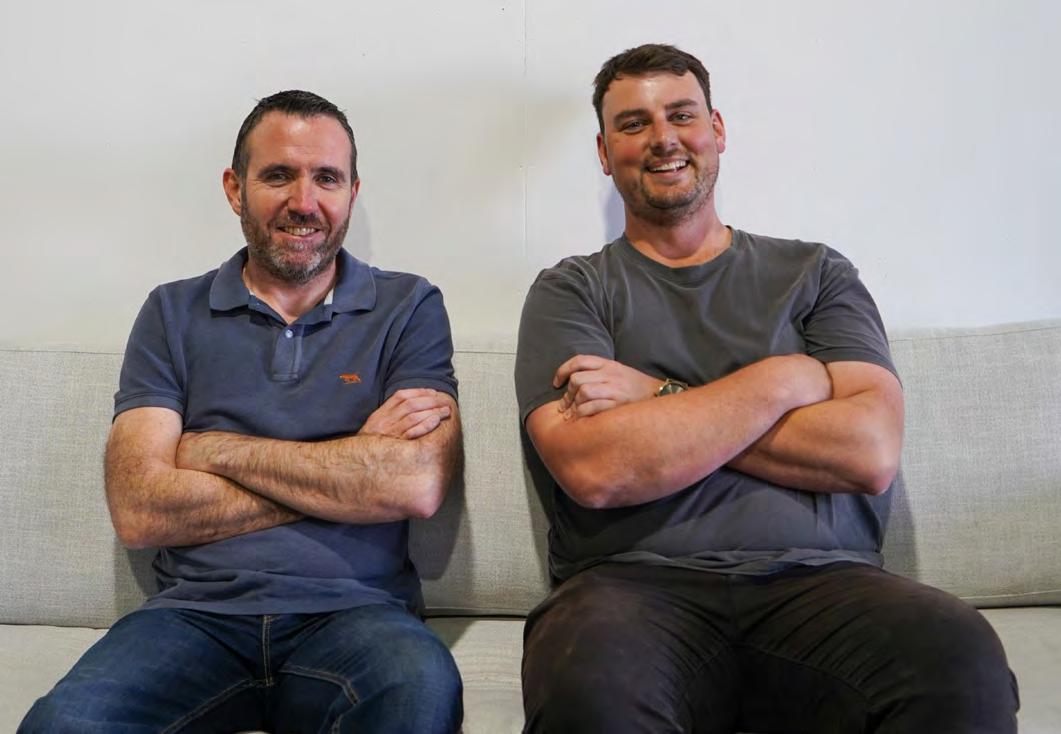
ago in the living room of his flat and has grown to become an industry leader in Waikato.
The purchase has strengthened Likeable Lab’s skillset, adding video production, specialist photography and website capabilities to the company’s suite of design, copywriting and social media ads expertise.
“The team that Steve has built is top-notch and this has translated into a small business that has been punching above
With lockdowns forcing people to do more business online, the need for a strong online presence has never been stronger.”
–
Nick McDonald
its weight for many years now,” said McDonald.
“We plan to honour the legacy the team has built with staff
and clients, but also beyond as we start to add more national and international clients.” Carpenter, who described
LeadSocial as his “first baby” said he was excited to watch the growth continue at a faster pace than ever before.
“I know it is in great hands with Nick and the amazing team around me who will not only remain but rise to the top.”
The two agencies, which have a combined staff of 15 across the Bay of Plenty and Waikato, will for the time being continue trading under their respective names.

Nick McDonald and Steve Carpenter:Merging social media strengths. Photo/Supplied
Social media advertising works, but is it ethical?
On one hand, we’re more connected than ever before – we can keep up with the happenings of friends and family almost in real-time, and limitless information is at our fingertips.
On the other, many of us are addicted – we scroll mindlessly through our Facebook or Instagram news feeds, often to the detriment of our relationships with the people we live with.
Not only that, but the rising popularity of social media platforms as a primary source of news means many of us become stuck in a virtual echo chamber, exposed only to the views of friends who think in the same way we do, and to information we’re most likely to agree with.
Given these impacts, should New Zealand companies be looking at boycotting or reducing their advertising spend on platforms such as Facebook, Instagram and Youtube?
The problem with the business model
The business model social media platforms run on is the root cause of the issue, according to many of those quoted in the popular documentary The Social Dilemma, which was released on Netflix recently.
Everyday users aren’t charged to use them, and they instead rely entirely on advertisers – with their own set of interests – to make money.
The advertisers are paying to have users’ eyeballs on their ads and promotional content, so it’s in the interest of Facebook, Instagram and other channels to do everything they can to keep users coming back for more.
The more impressions and engagement with those ads, the happier advertisers are, and the more money they make.
The implication of this is that Facebook, Instagram and
The proliferation of “fake news” and increased rates of mental illness and online addiction are causing a growing number of people to question the value of social media.

controlling how this can be done.
What’s more, a growing number of young people are basing their sense of selfworth on the number of likes and comments they receive on photos and videos they post.
According to The Social Dilemma documentary, non-fatal self-harm hospitalisations among girls aged 15-19 in the USA has risen by 62 percent since 2009 – the year that Facebook became the most popular social media platform in the world. Among US girls aged 10-14, the increase in non-fatal self-harm hospitalisations was 189 percent in the same period. Data obtained by Newshub
last year suggests the problem is similarly significant in New Zealand. The number of people discharged from hospitals for self-harm across all age groups and genders increased from 2,808 in 2009 to 4,878 in 2017.
Radio NZ reported that there were 3,081 hospitalisations for self-harm among New Zealanders under 20 in 2019, up by 200 compared to 2018.
What is an ethical business to do?
If they are to be believed, most of us would agree that impacts such as these are horrifying. But at the same time, many

THE LAST WORD
> BY JAMES HEFFIELD
Director of Bay of Plenty marketing and PR consultancy Last Word. To find out more visit lastwordmedia.co.nz or email james@lastwordmedia.co.nz.
of us have benefitted from the reach and laser-sharp targeting social media advertising can provide.
Many businesses have placed a considerable portion of their marketing budget into social media platforms, for the very reason that they are effective and are making a tangible difference to their success.
The question is whether
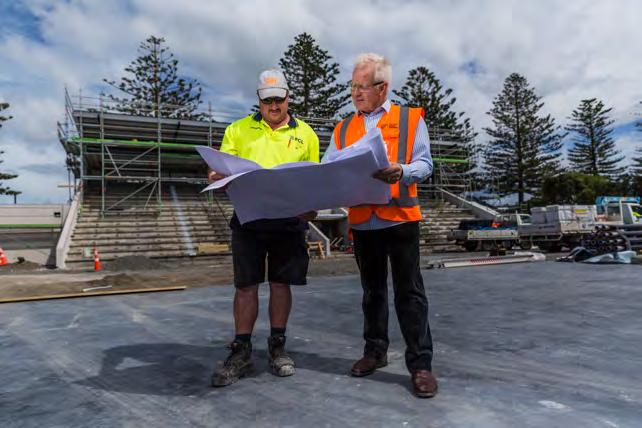
decided to make a stand are Coca Cola and Lego. The two multinationals are among a group of companies that have suspended their advertising on Facebook and some other social media platforms in some parts of the world, arguing that the company needs to do more to end hate speech and misinformation.
If suspending advertising media channels. Ultimately, better regulation of social media platforms may be required. This might include rules around the methods used to keep people’s attention – to reduce addiction – and rules around who can be targeted, and how.
In the meantime, those that see a problem might want to voice their opinions about the need to change, and to put a little more of our advertising dollars into other channels that are better regulated, tried and
I’d love to hear your views on the matter. If you want to share, please feel free to email me on the contact address



Taking into account the new government’s employment policies
The election is now behind us and the outcome wasn’t really a surprise. Probably the most unusual factors being that the outcome for National was worse than expected, with Labour performing better than expected and finishing up being able to govern alone.
As I write this, we are still awaiting the outcome of the two referendums.
However, I thought it was timely to reflect on some of the changes that the Labour Government has made to employment legislation over their past term, and look at their election policies and what we are likely to see moving forward over their next term.
Over the past three years of Labour’s term leading a coalition with the Greens and NZ First, some of the changes made to the Employment Relations Act included the provi-
sion of greater protections to workers, particularly those considered to be vulnerable workers, reinstating of meal and rest breaks and amending the 90-day trial period to businesses with less than 20 employees.
Back in April they raised the minimum wage to $18.90 per hour. They have also updated the Equal Pay Act, addressing the well-publicised gender pay gap, along with increasing paid parental leave up to 26 weeks and increasing the maximum payment by $20 per week.
Moving forward, in Labour’s election campaign, some of the big topics to note for employers are the increase to the minimum sick leave entitlements from the current five days to 10 days per year.
The minimum wage will also increase to $20 per hour in 2021. They also publicised the notion of an additional public holiday to recognise Matariki from 2022.
Also outlined was the plan to progressively extend the Living Wage through to those who contract to the public sector, such as cleaners, cater-

HUMAN RESOURCES
> BY KELLIE HAMLETT
Kellie Hamlett is Director and Recruitment & HR Specialist, Talent ID Recruitment Ltd. She can be contacted on kellie@talentid.co.nz
ers and security guards, along with pay equity for women and make it easier for workers to receive fair wages and conditions by implementing Fair Pay Agreements.
The Holidays Act – still a work in progress – is also on the board for further review and simplification.
Labour are also pledging to implement a major support package to help businesses with the aim of hiring at least 40,000 Covid-19-impacted
kiwis back into the workforce.
For those who have lost their jobs due to Covid, and separate to the Wage Subsidy Scheme, people can now receive payments of up to $490 per week whilst they either look for new employment or retrain.
So for now – while Labour enjoys their win and the post-election high, as business owners we are taking stock of the short time in the lead up to Christmas, staring into our
2degrees’ $1b network is built for business
As the third fastest growing region in the country, the Bay of Plenty has been busy. So, in the last few years 2degrees got busy too, expanding their network coverage and capacity across the region.
Since the company launched in 2009, 2degrees has spent $1b building out their network across the country, site-by-site.
For businesses in the Bay of Plenty this means that the 2degrees network now covers 99.7% of the places people live and work thanks to 17 new cell sites that have been built across the region in the last year, and 30 existing sites have been upgraded in the last three years.
Around the rest of the country, 2degrees has turned on more than 550 4G cell sites this year in areas that previously only received 3G coverage. This network investment has been particularly targeted at less populated areas and on the roads between New Zealand’s towns and cities.
This investment means Bay of Plenty businesses are seeing improved connectivity at home, on the road and even at their holiday spot. And the improvements couldn’t come at a better time.
During the Covid-19 lockdown, we learned how important connectivity really was to our communities.
It benefited students who were able to learn from a distance, helped people to stay in touch with their loved ones and allowed businesses
to operate remotely. More generally, better connectivity creates safer communities, increases access to services, assists our visitor sector and helps businesses attract and retain employees.
Thanks to a strong network, Bay of Plenty businesses were able to get on with it during lockdown. In fact, some businesses did mobile working so well, they don’t want to stop.
The 2degrees Shaping Business Study asked more than 1,000 business decision-makers about their attitudes to work following lockdown. More than half (58%) said they introduced flexible working practices, and one in five (19%) are reconsidering the idea of a traditional office space.
This flexibility will be familiar to many Bay of Plenty businesses who already work out of rural locations or need to regularly to travel around the region.
While local businesses are at different stages in their adoption of mobile working, it’s clear that reliable mobile and broadband services are a necessity to keep team-members connected and businesses in touch with their customers.
A strengthened 2degrees network mean even more Bay of Plenty businesses can keep doing
crystal balls and pondering what joys the end of the year and the first quarter of the business year will deliver.
As employers we are now having to consider more and more in this ever changing next generation world of flexible employment, safe environments, greater staff protection, PC workplaces, and Covidfree end of year functions, all while scrutinising our operating budgets and cash-flow forecasts. See #resilience
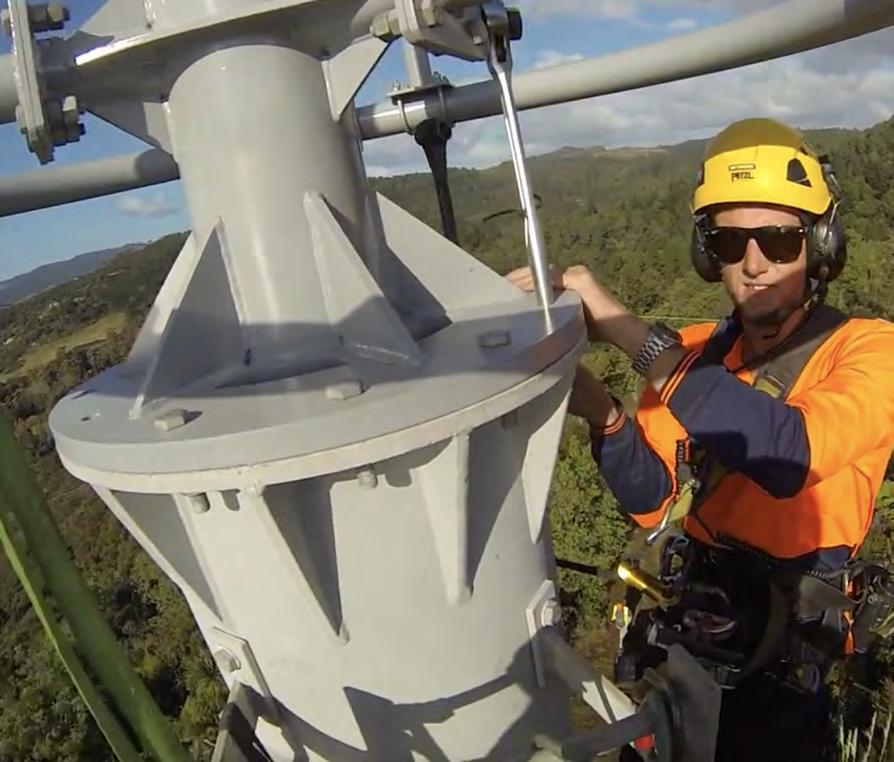
what they do best – running their business.
And while what is most important is the connectivity 4G brings, 2degrees isn’t stopping there. By the end of 2021, 2degrees’ 5G network will go live, creating even more transformative possibilities for Kiwi businesses. No matter what the future holds, 2degrees is committed to providing your business with the tools it needs to flourish. If you’d like to know more about all the ways we can help you, get in touch with our local team today.
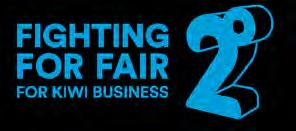
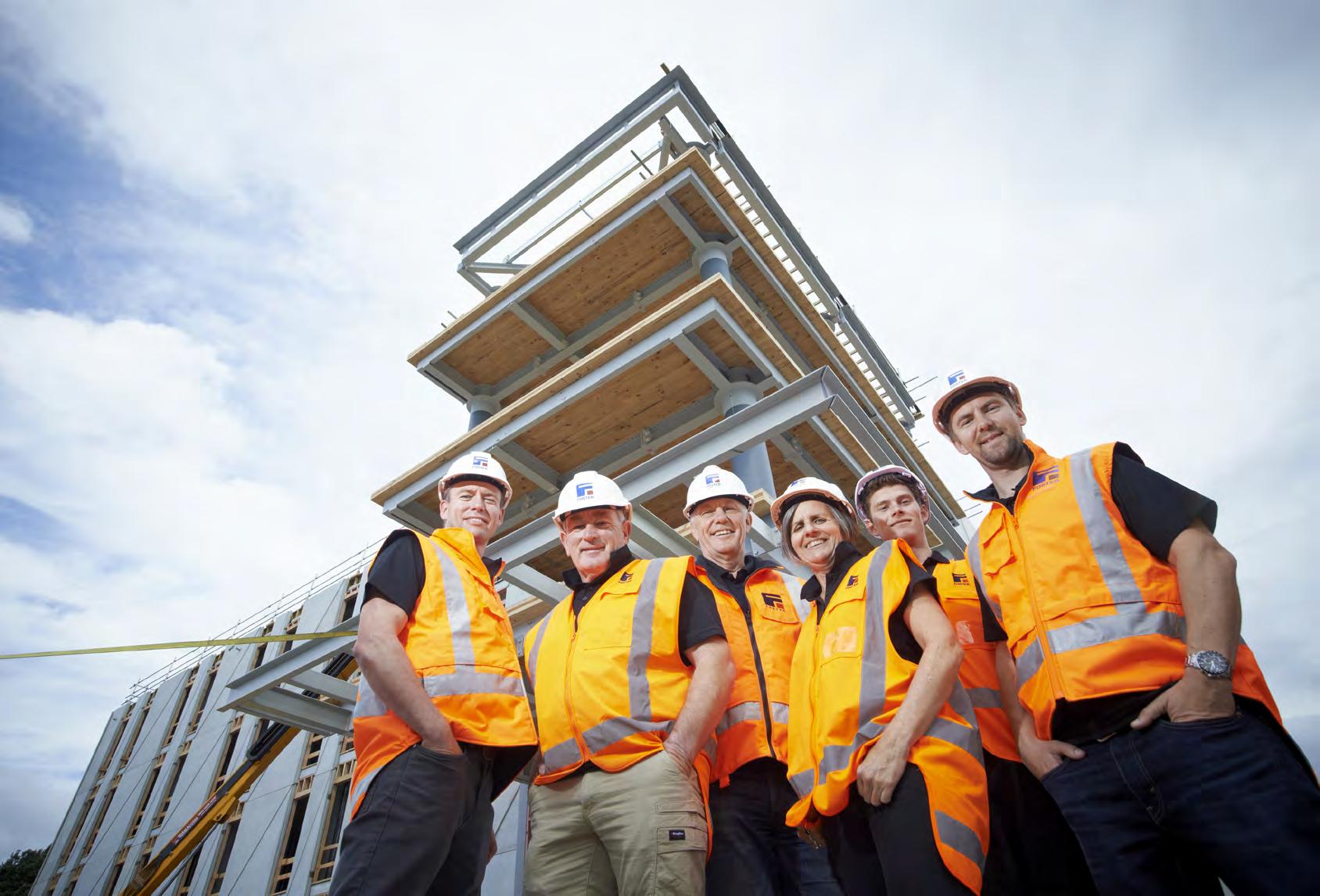
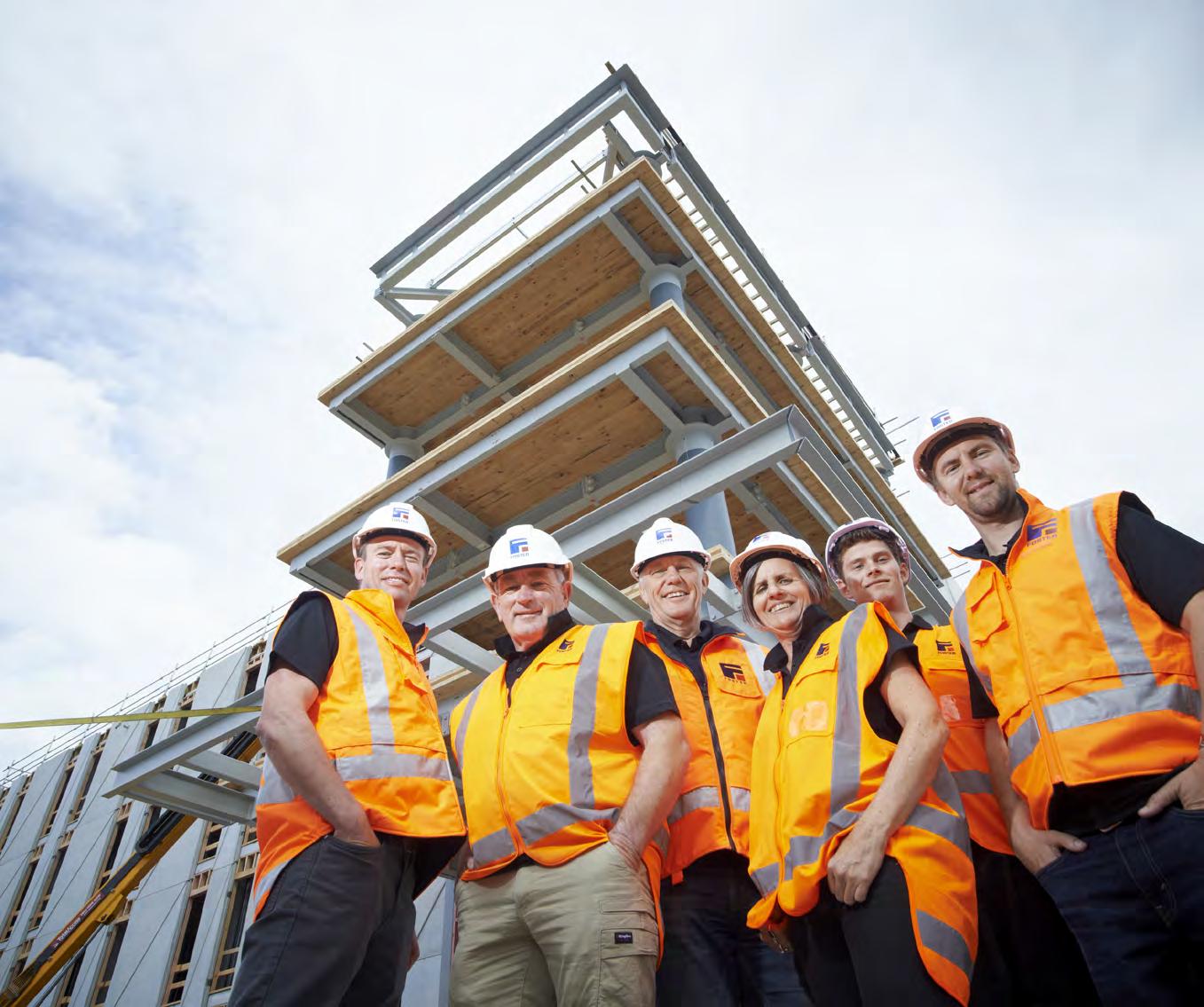
FOSTER
CONSTRUCTION GROUP IS HERE TO STAY
The Foster Construction Group, one of the Waikato’s bestknown construction companies, are proud to have forged a foothold in the Bay of Plenty over the last three years. Committed to staying here, they’ve increased their mission to build “Great Communities through Strong Foundations”.
Fosters’ Tauranga office was established in 2017, soon after being awarded the contract to expand the Bayfair Shopping Centre.
“The Bayfair expansion was an exciting project, requiring our team to focus entirely on the build to make it a success” says Allan Bradshaw, Bay of Plenty Manager for Foster Construction Group.
“We aim to work with local supply and subcontractor networks to ensure we’re engaged with the community too, so with a three-year project underway and plenty of scope for more projects in the future, it made sense to establish a Bay of Plenty hub.
“Plus, we strongly believe that creating a team environment is integral to the success of any project.”
For three years, the Foster team, along with local subcontractors, worked tirelessly at Bayfair – building a new
Countdown Supermarket, expanding the retail precinct, and adding an alfresco dining area, new cinema complex and extra parking – all while the existing shopping centre remained fully operational.
Following the successful completion of Bayfair earlier this year, Foster Bay of Plenty has continued to grow and now represents all four arms of the Foster Group: Foster Develop, Foster Construction, Foster Maintain and Foster Engineering.
“With several projects underway in the Bay and a strong forward work programme in place, we are here to stay and proud to call ourselves local” continues Allan.
“The Foster team possesses a skill set which turns an idea into a project design, the design into a project cost, the cost into a project programme and ultimately, physical delivery of the work required, from construction to engineering and then maintenance.
“It gives us great pleasure to offer our support to businesses, activities and community groups all around this region with both the means and skillset to make things happen.”
To get in touch with Foster Bay of Plenty, please call 07 570 6000.

